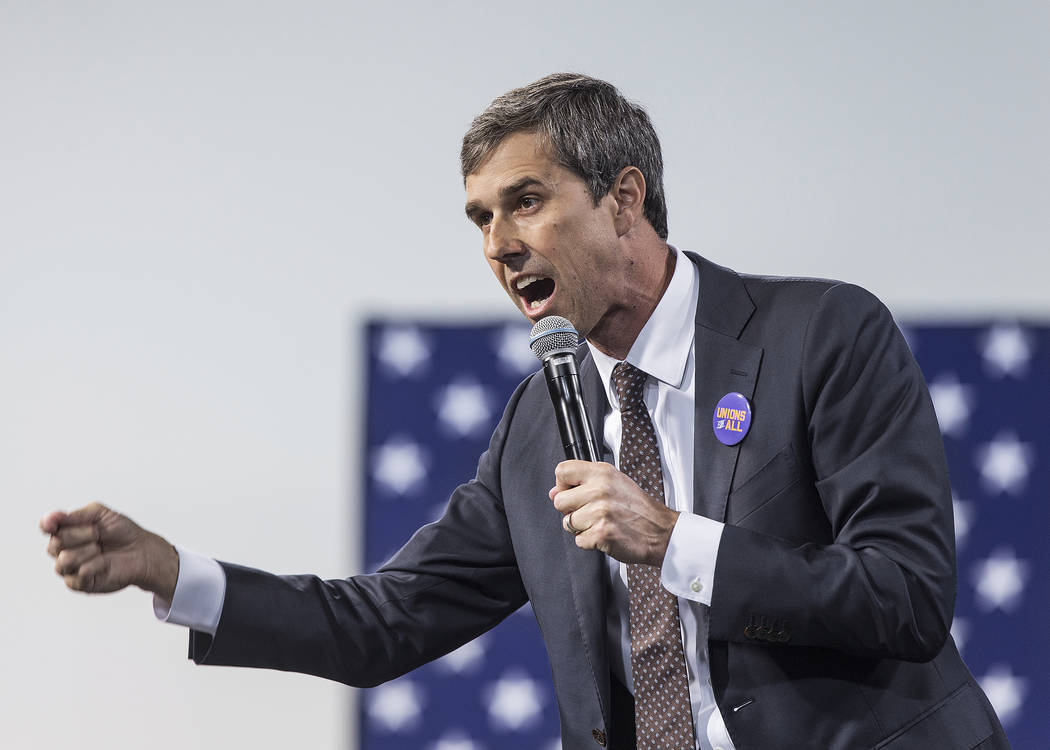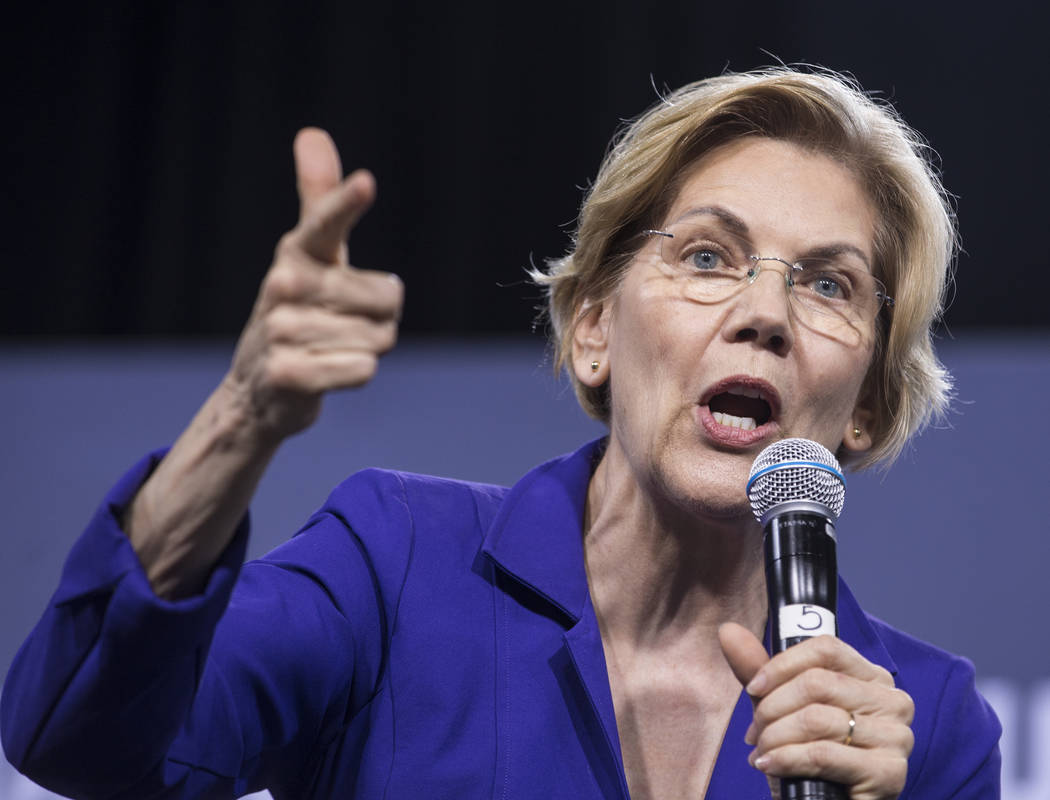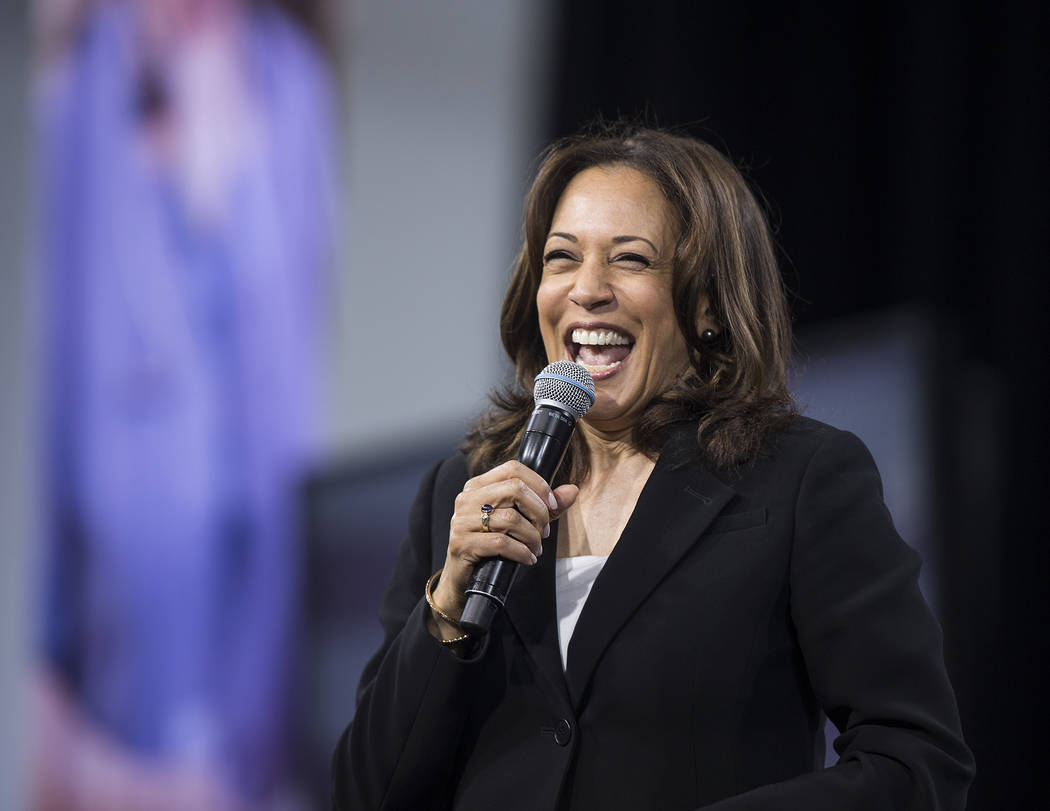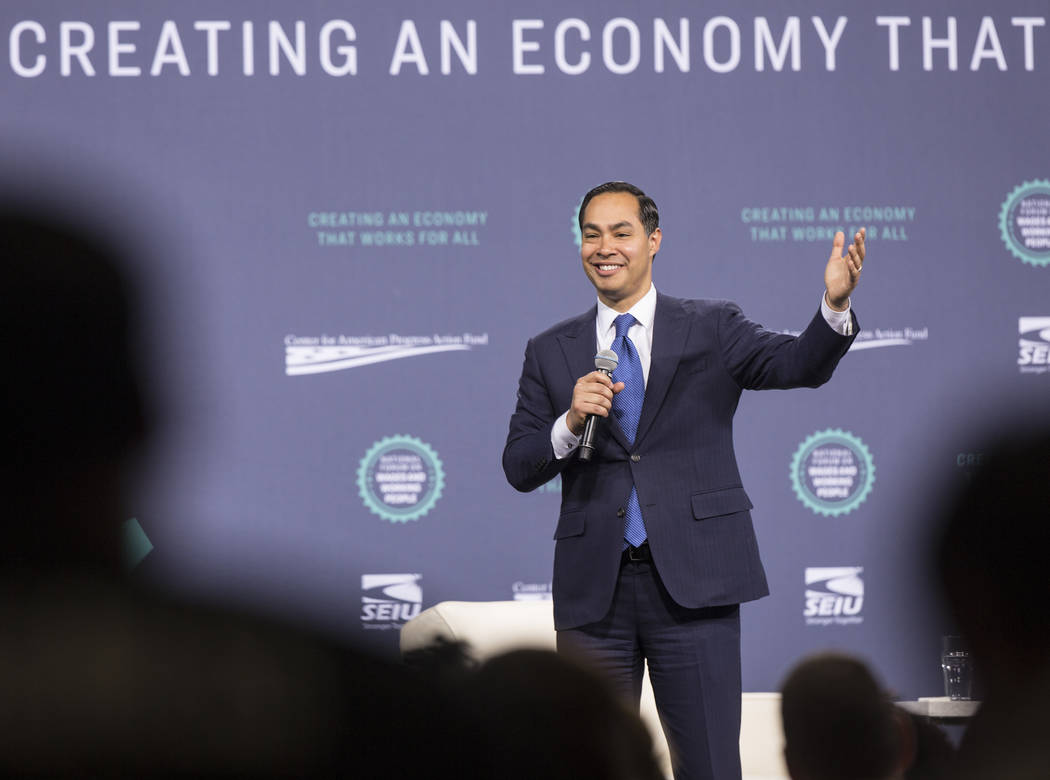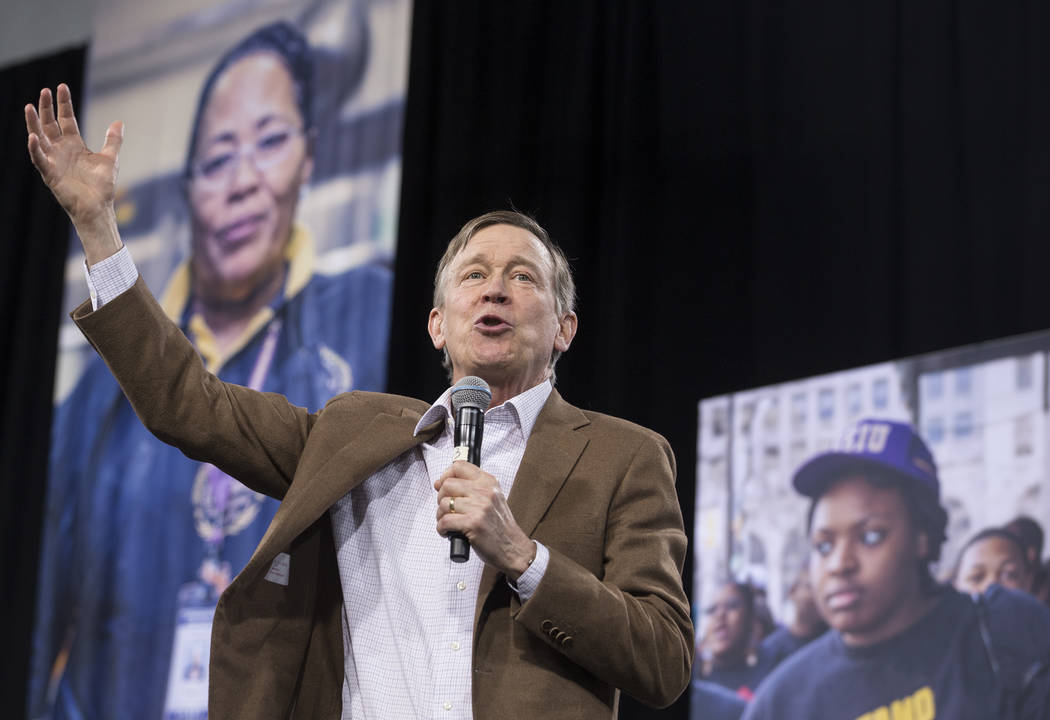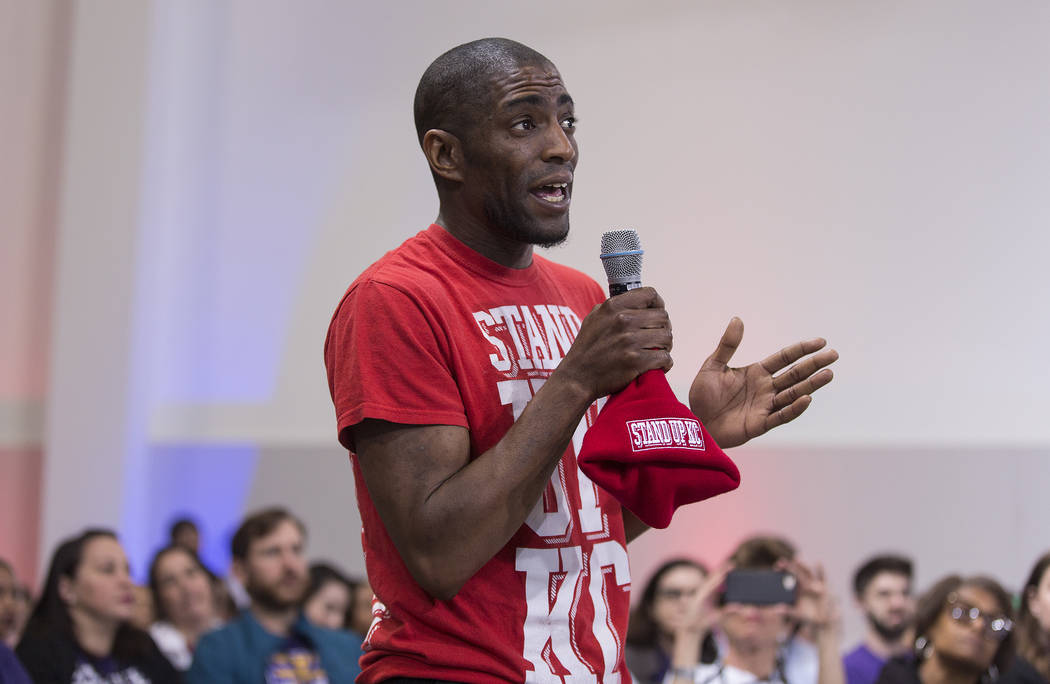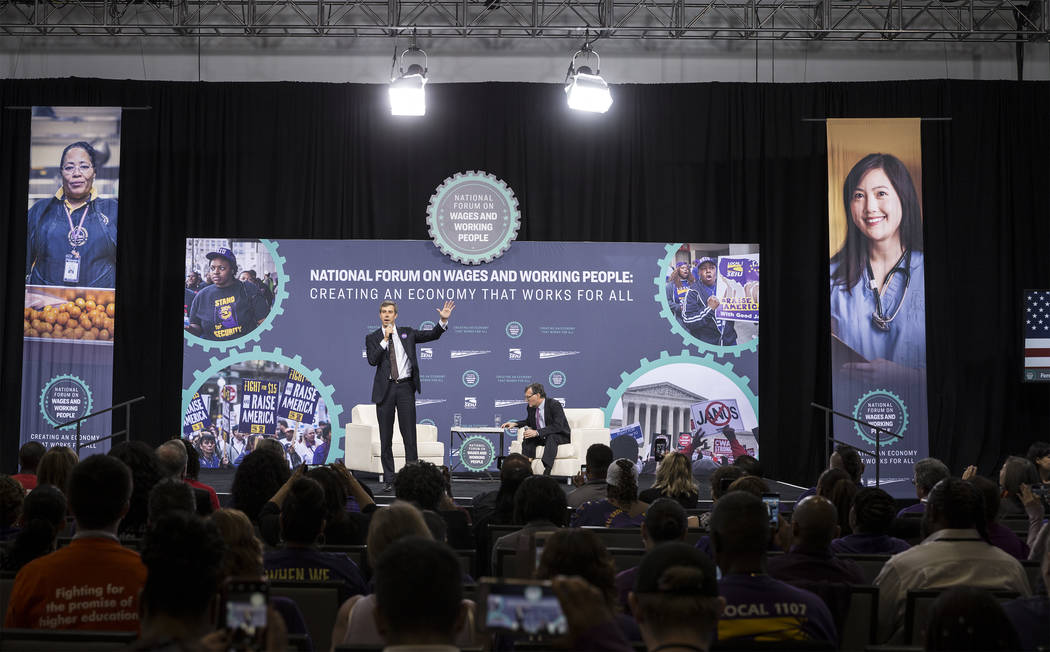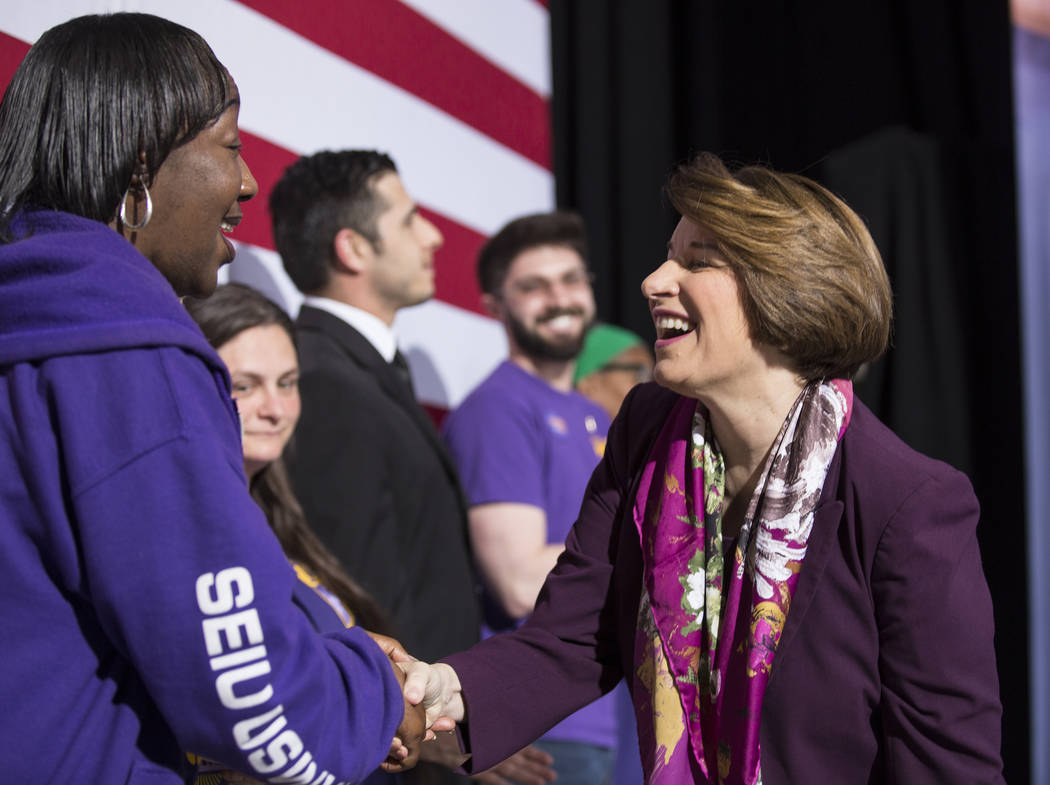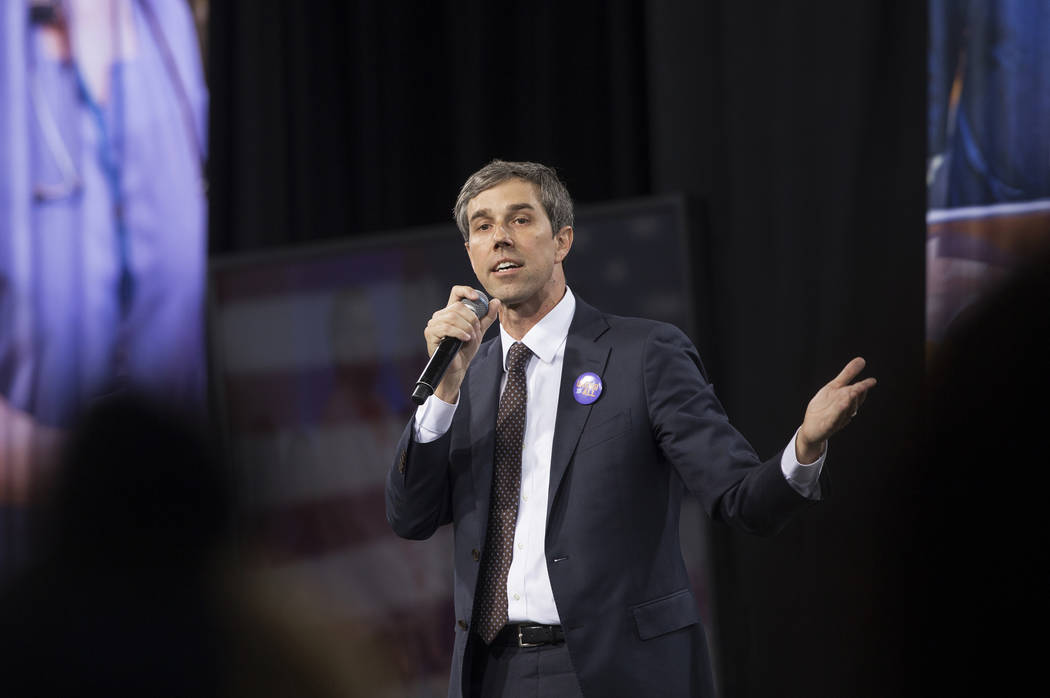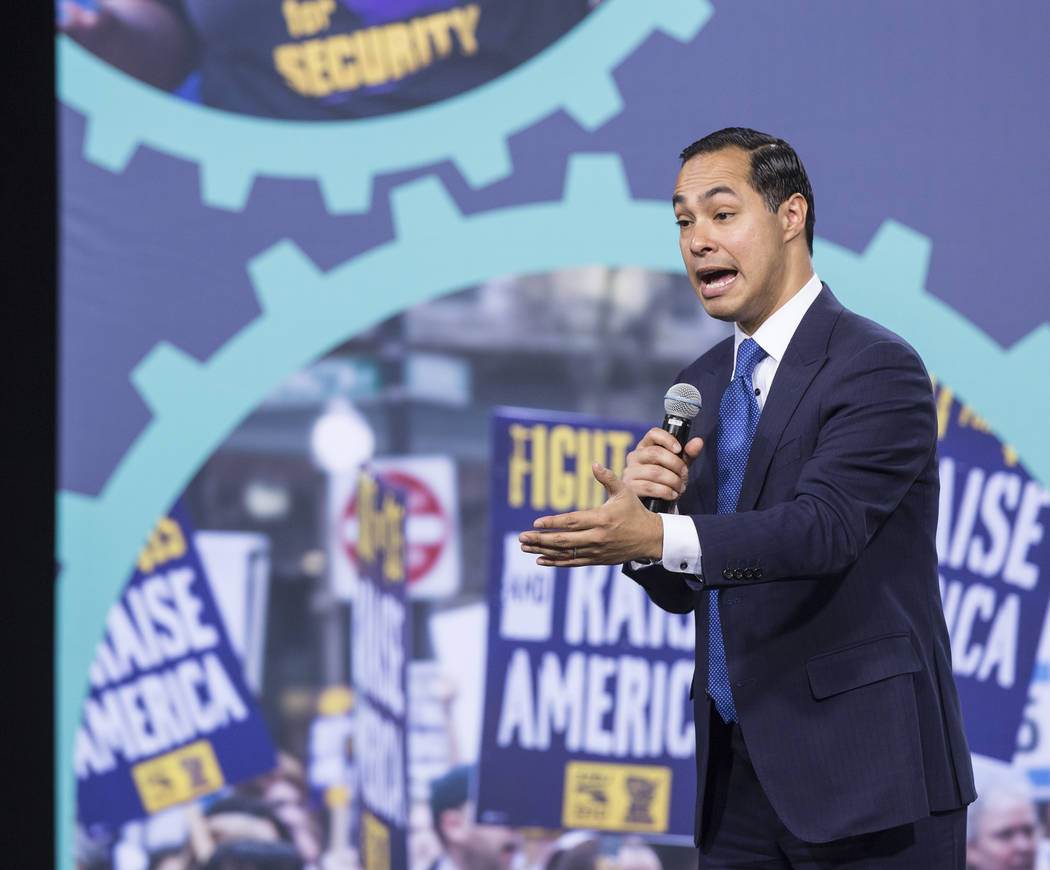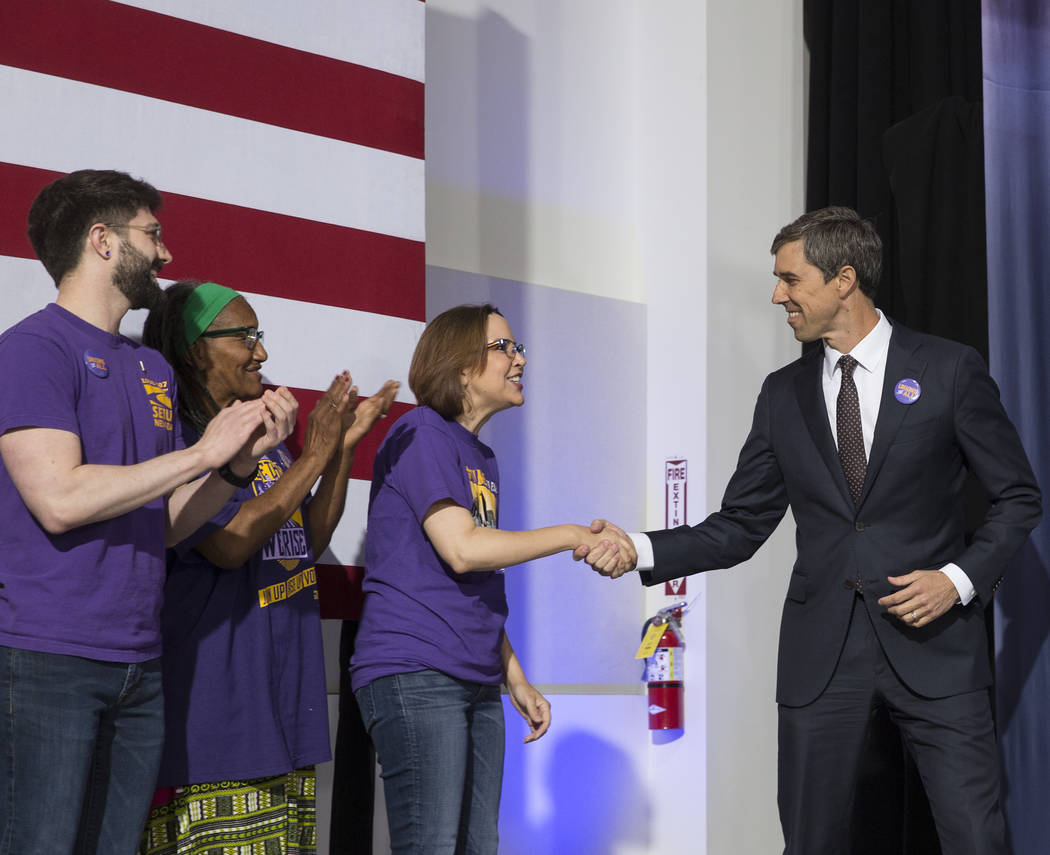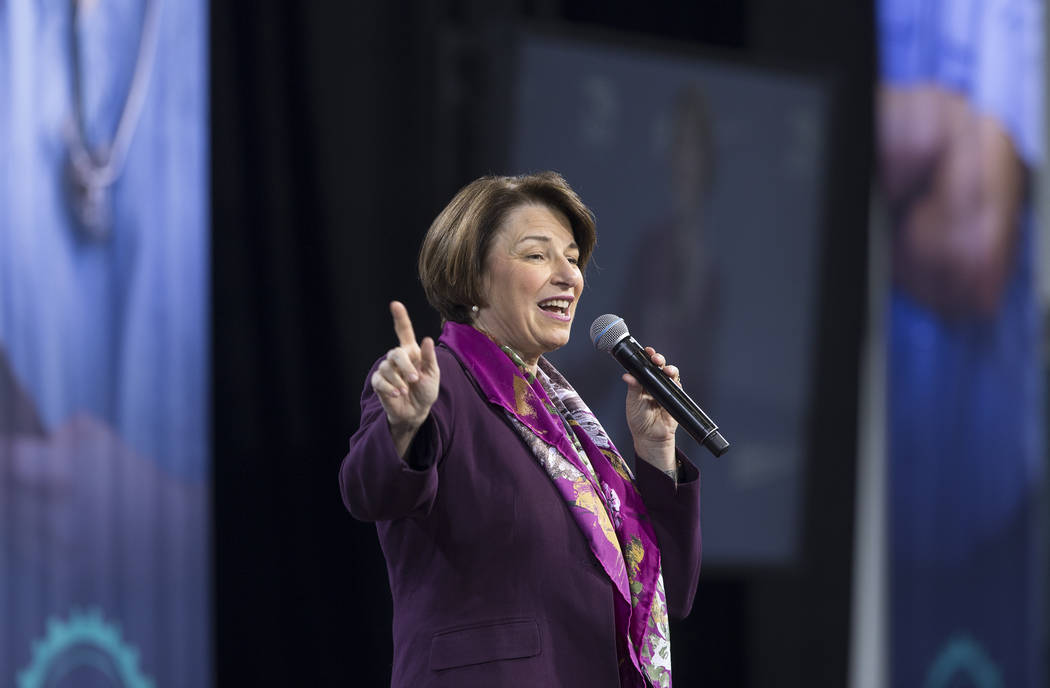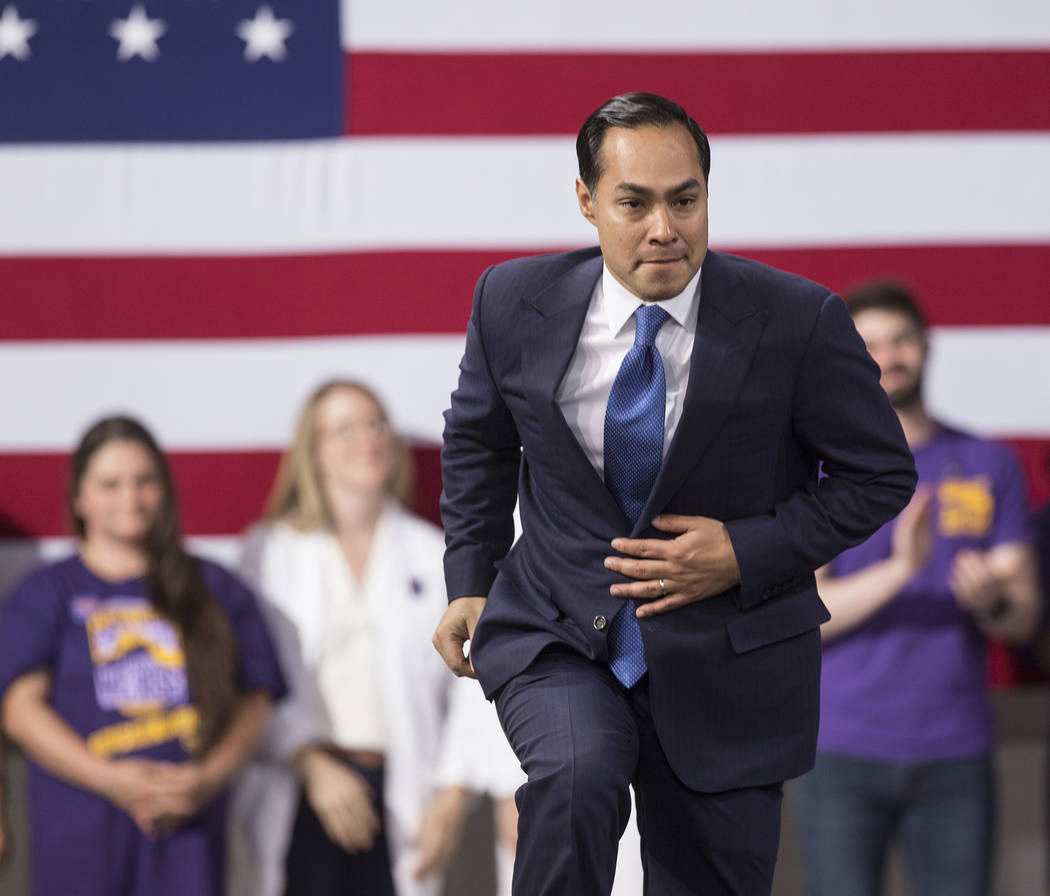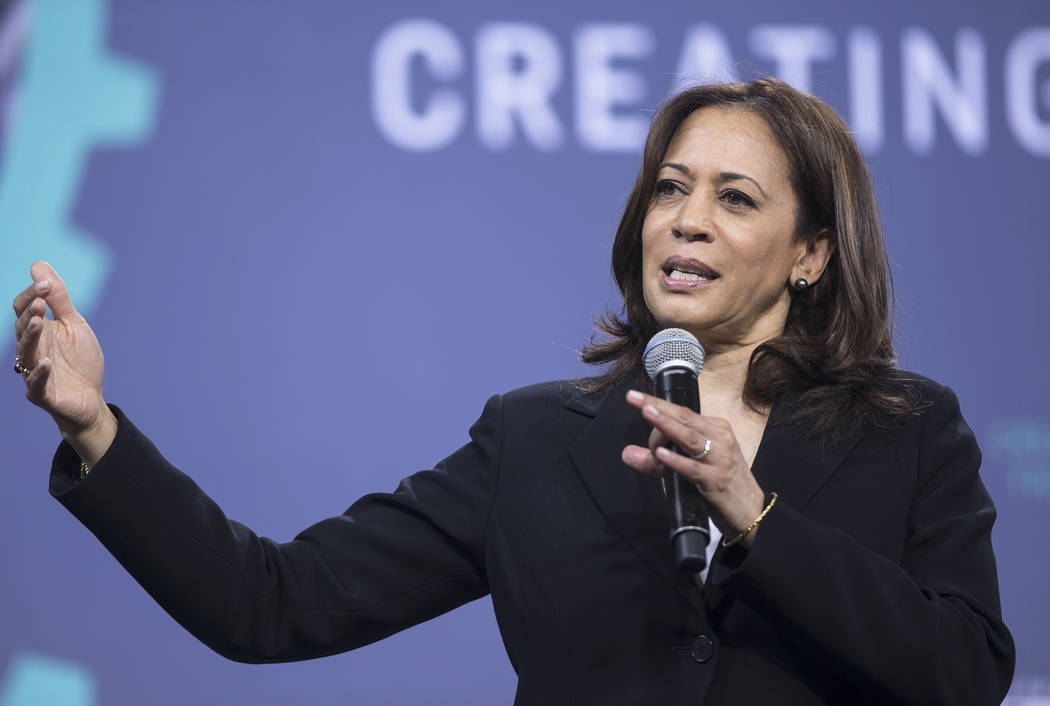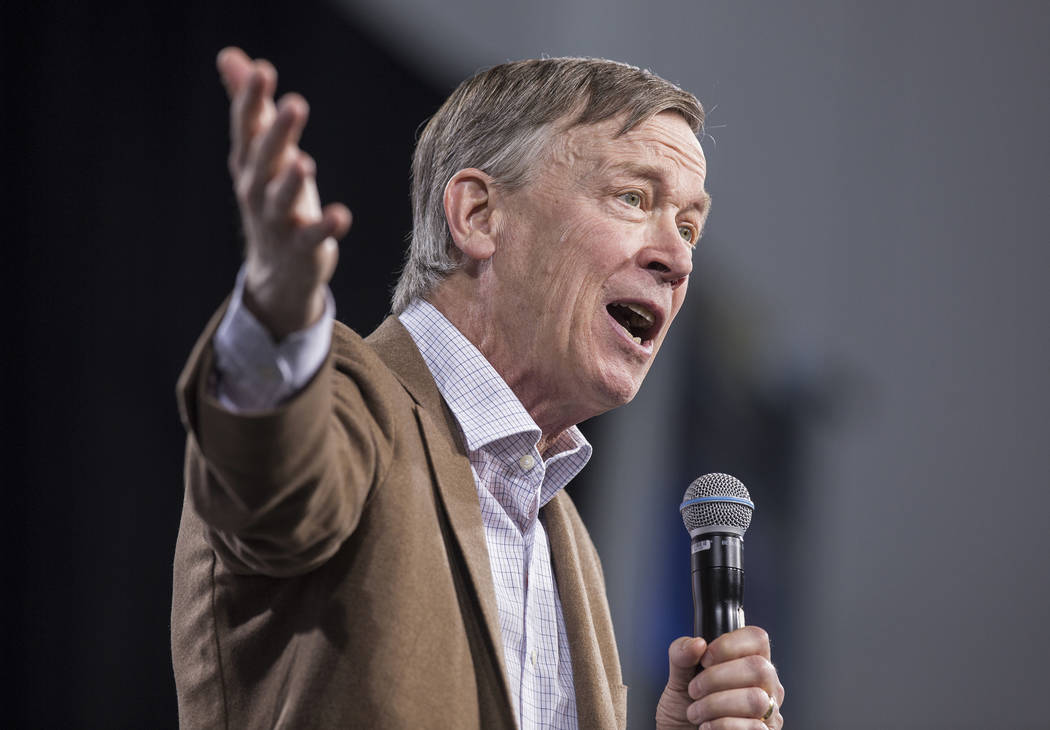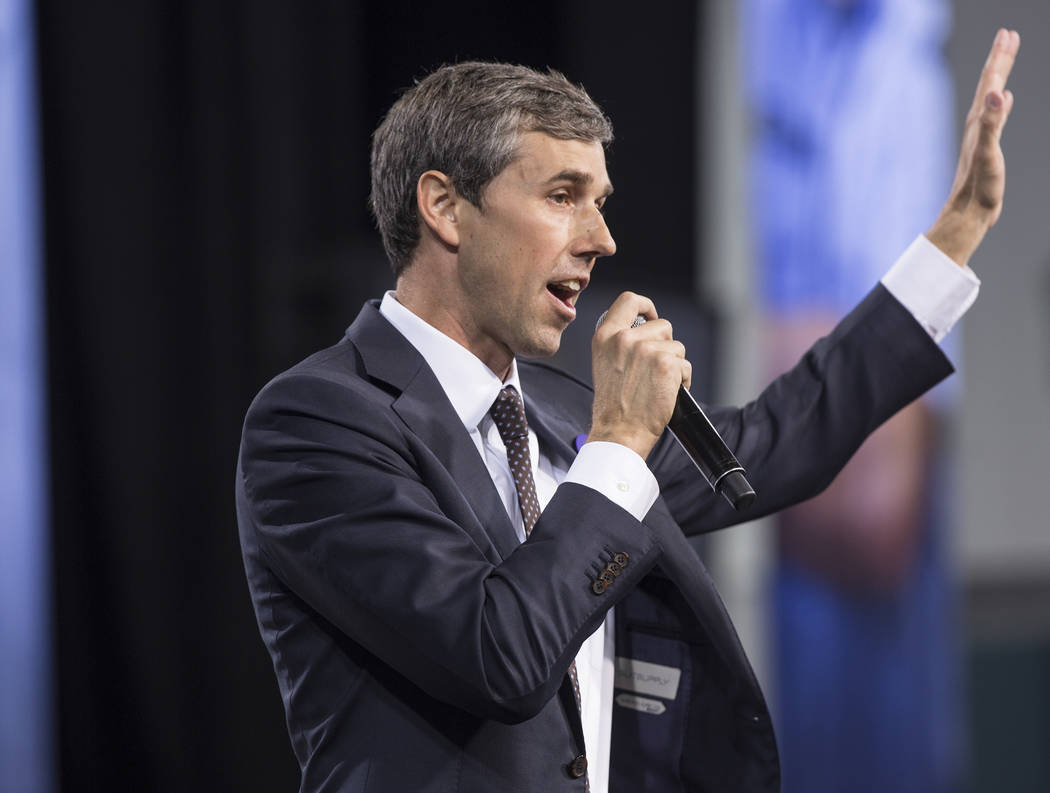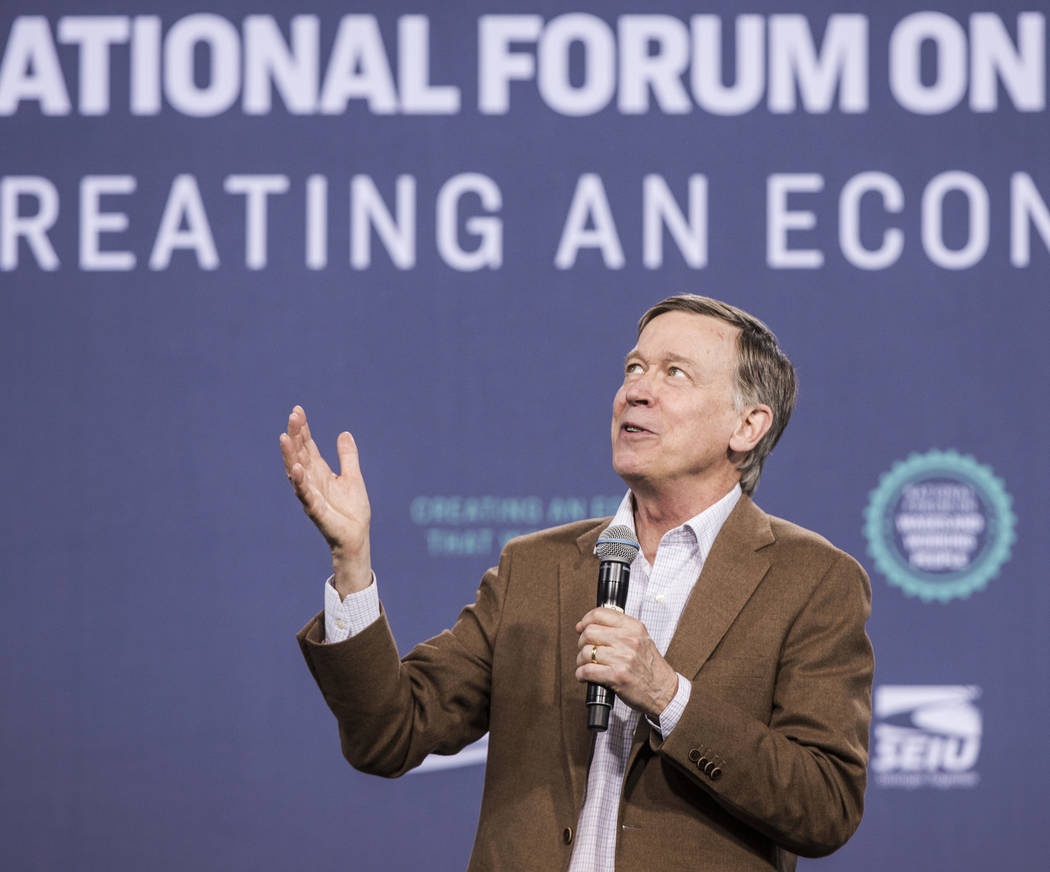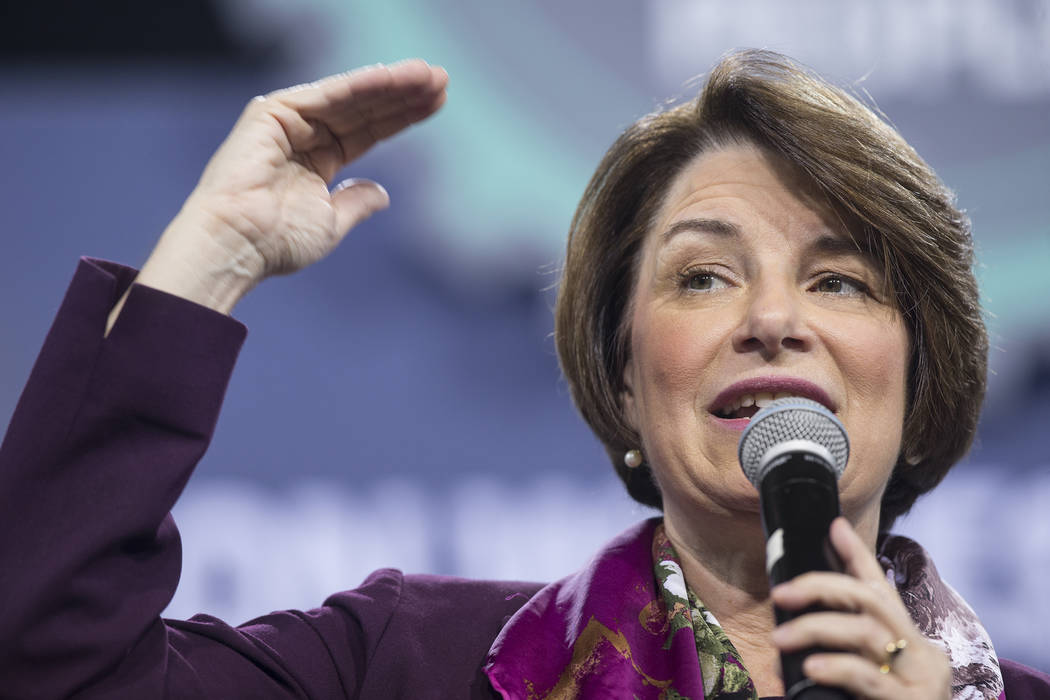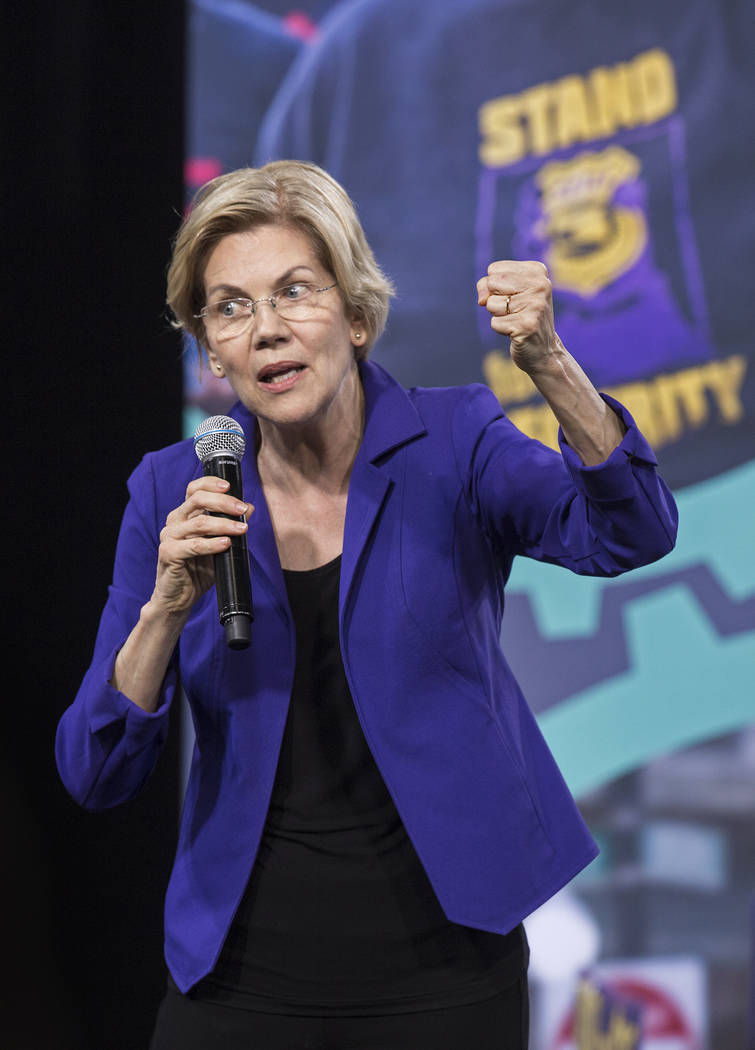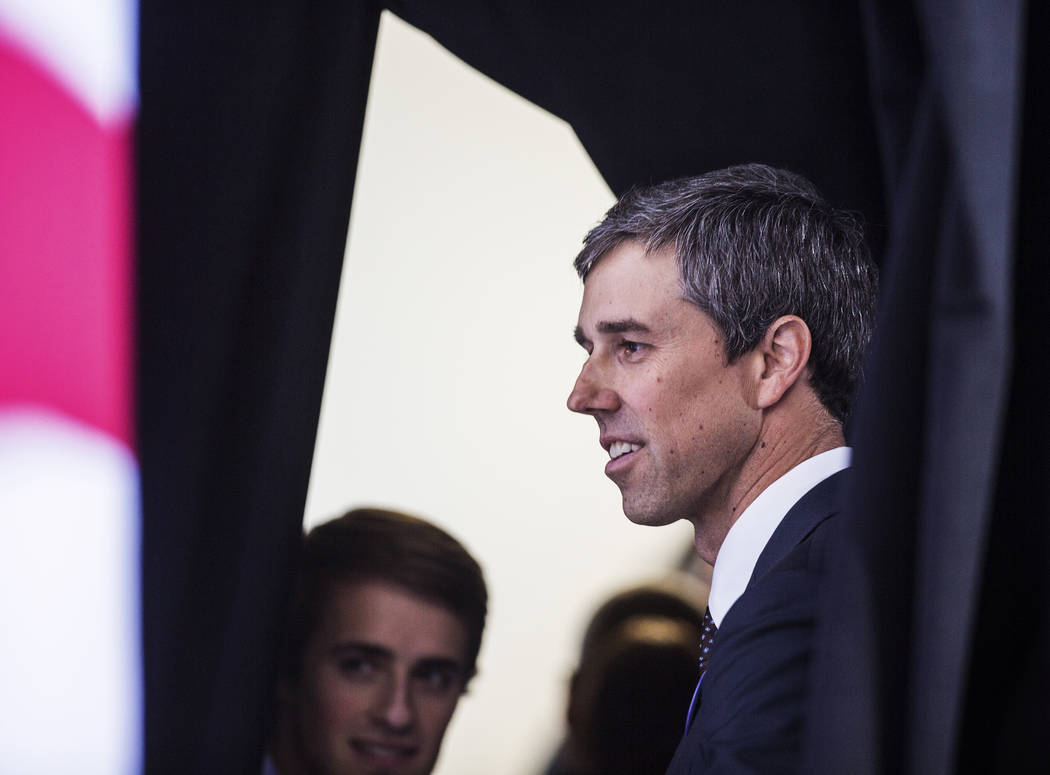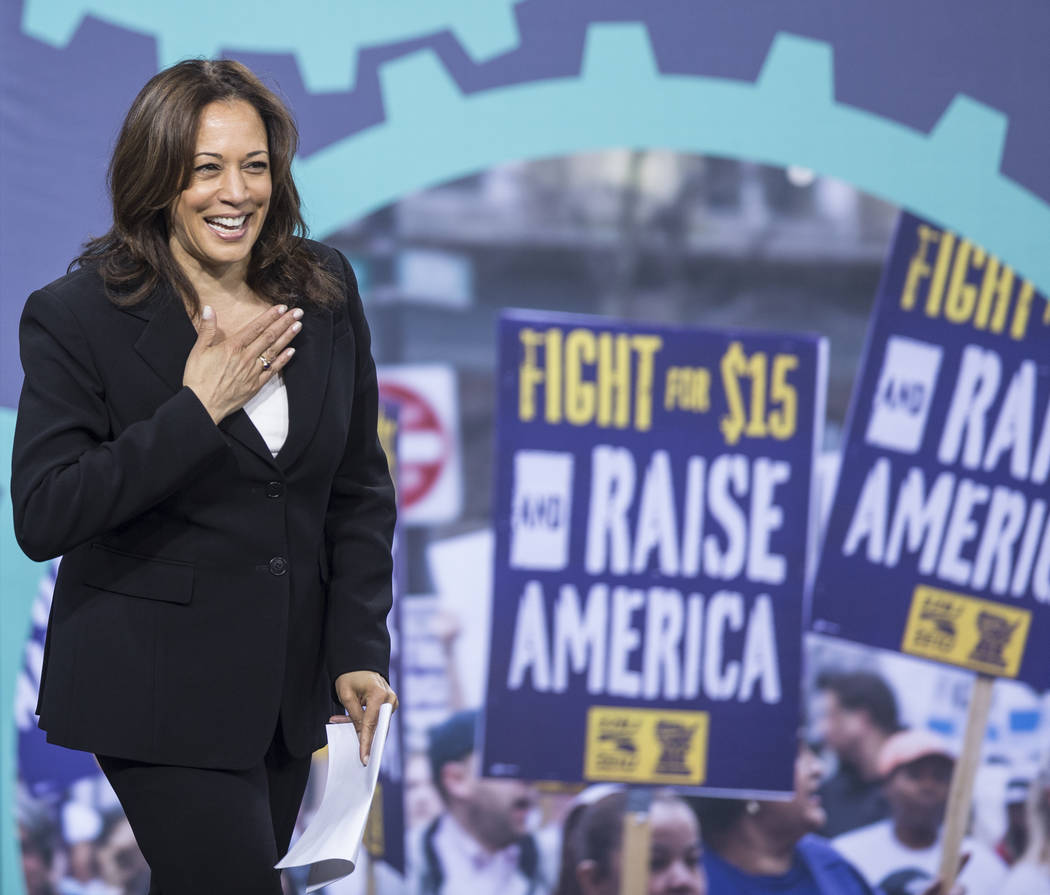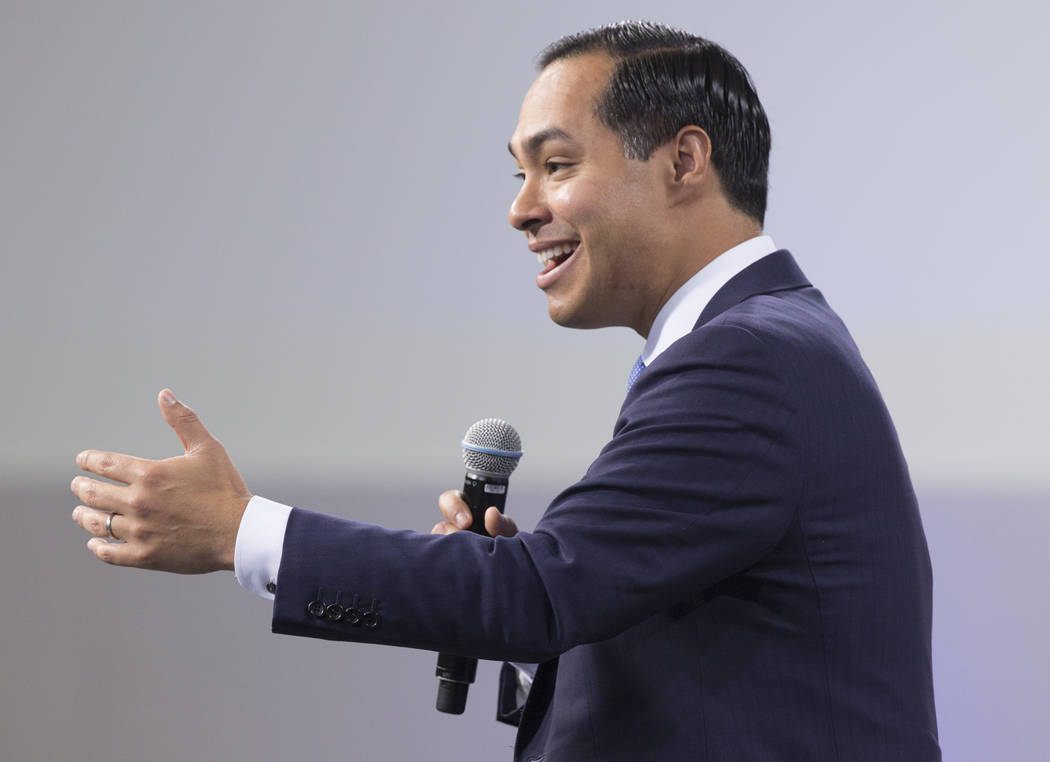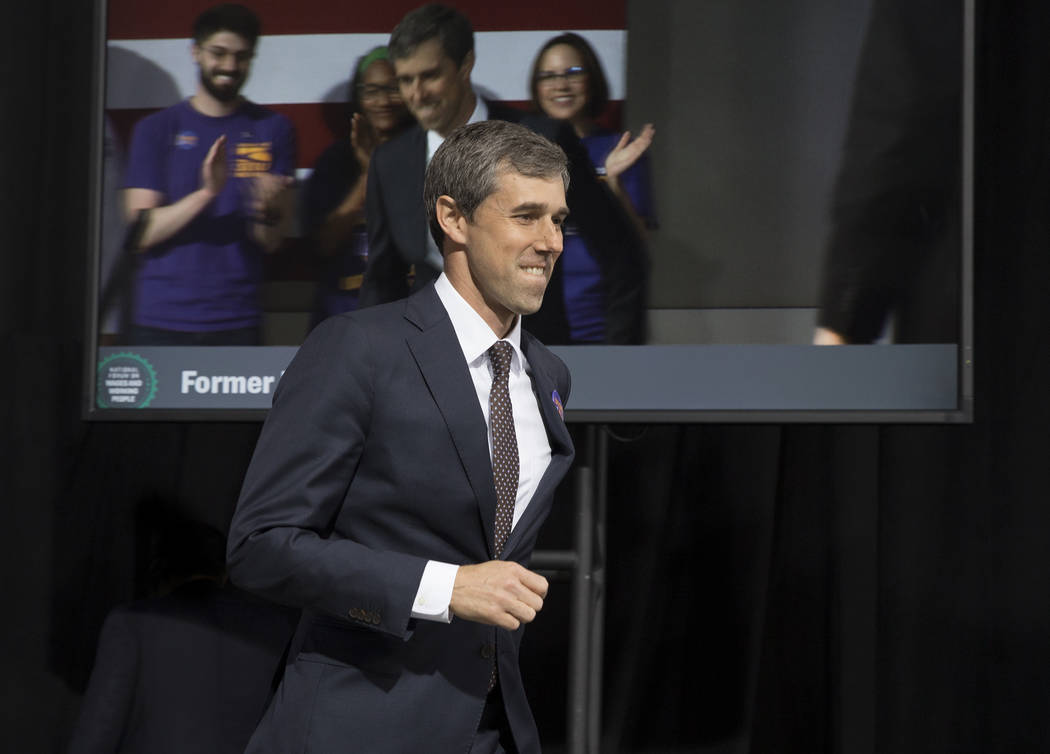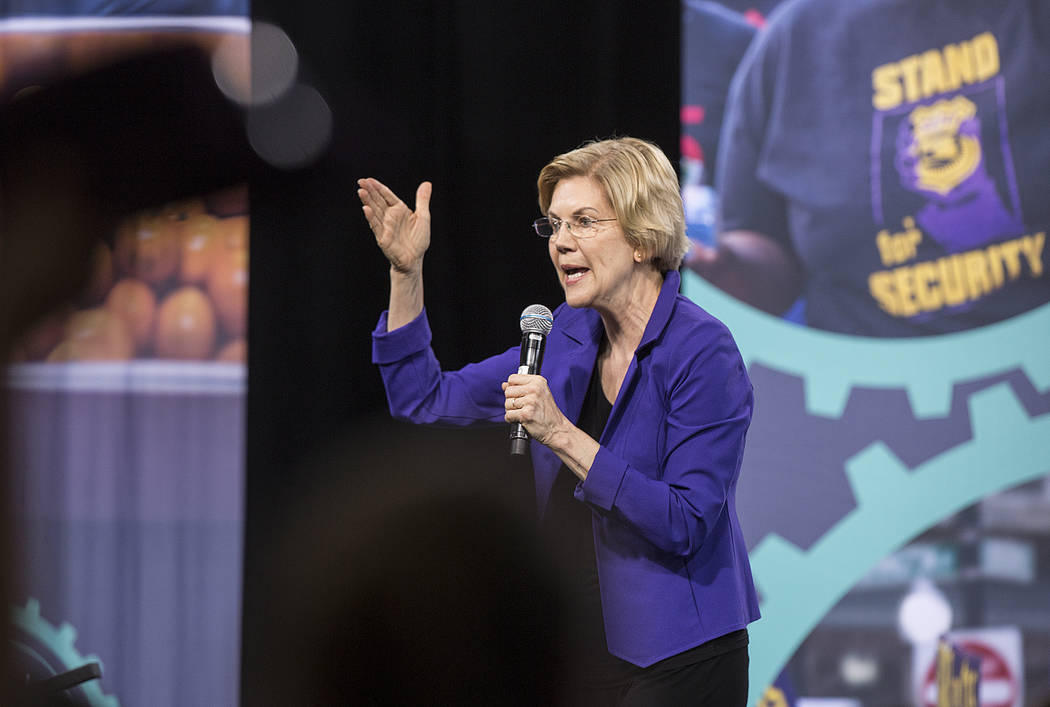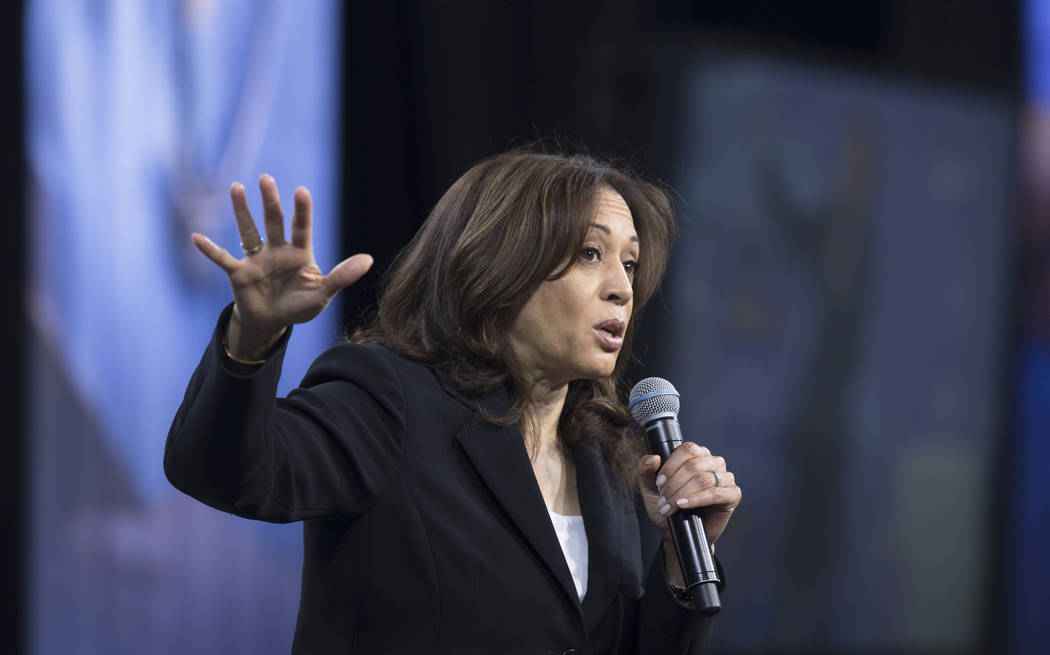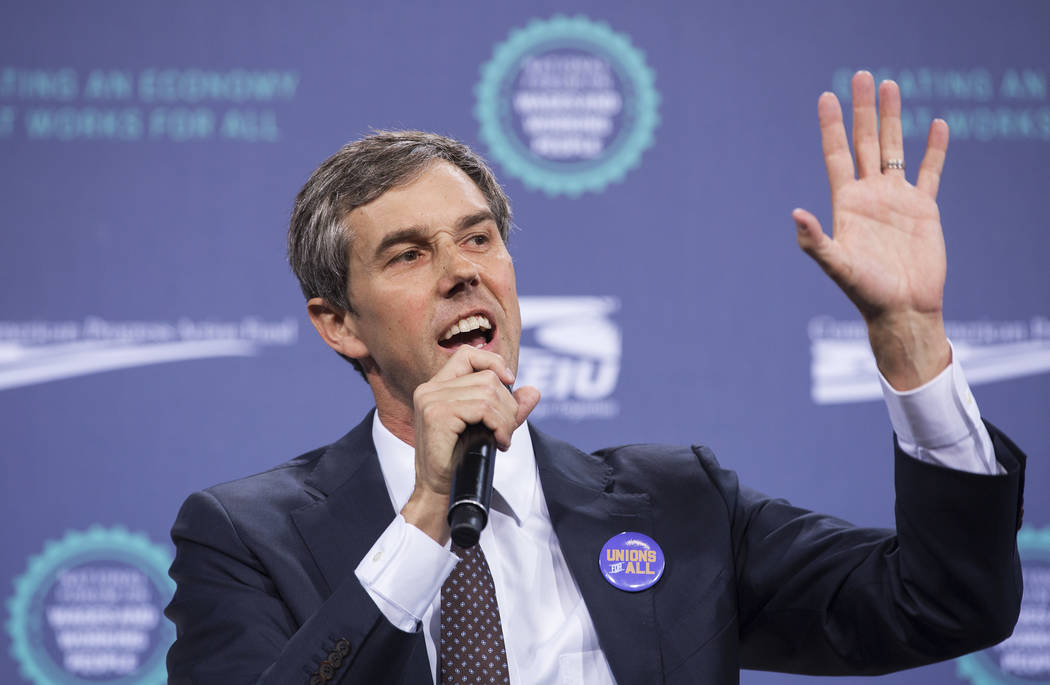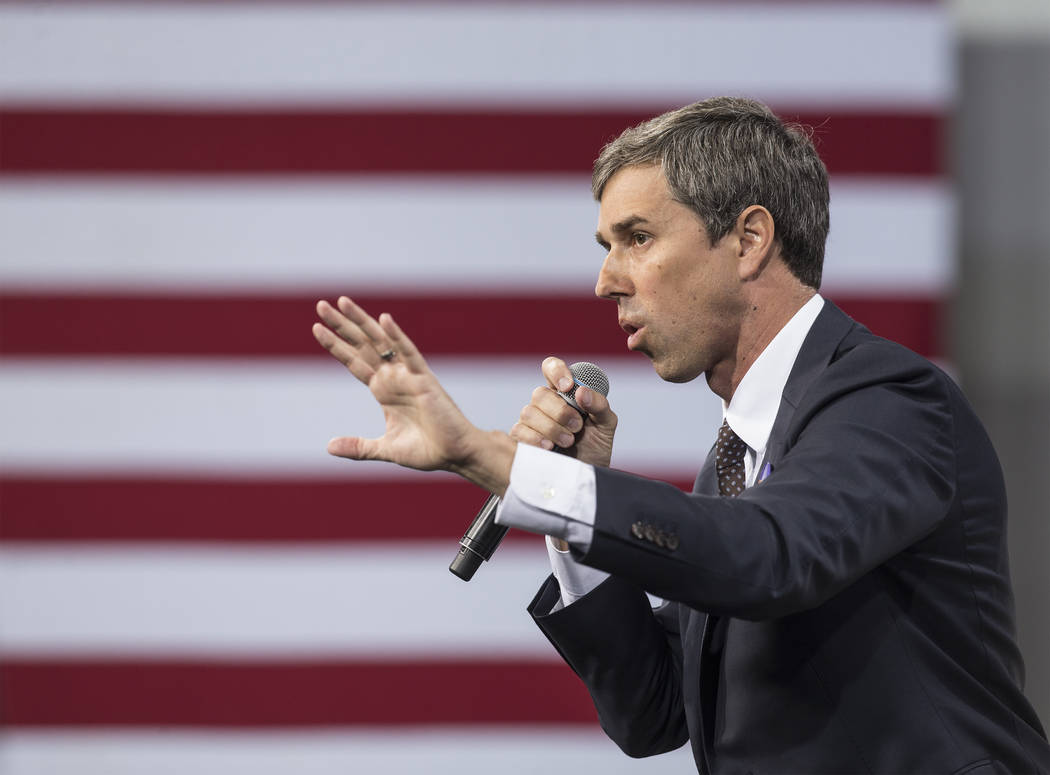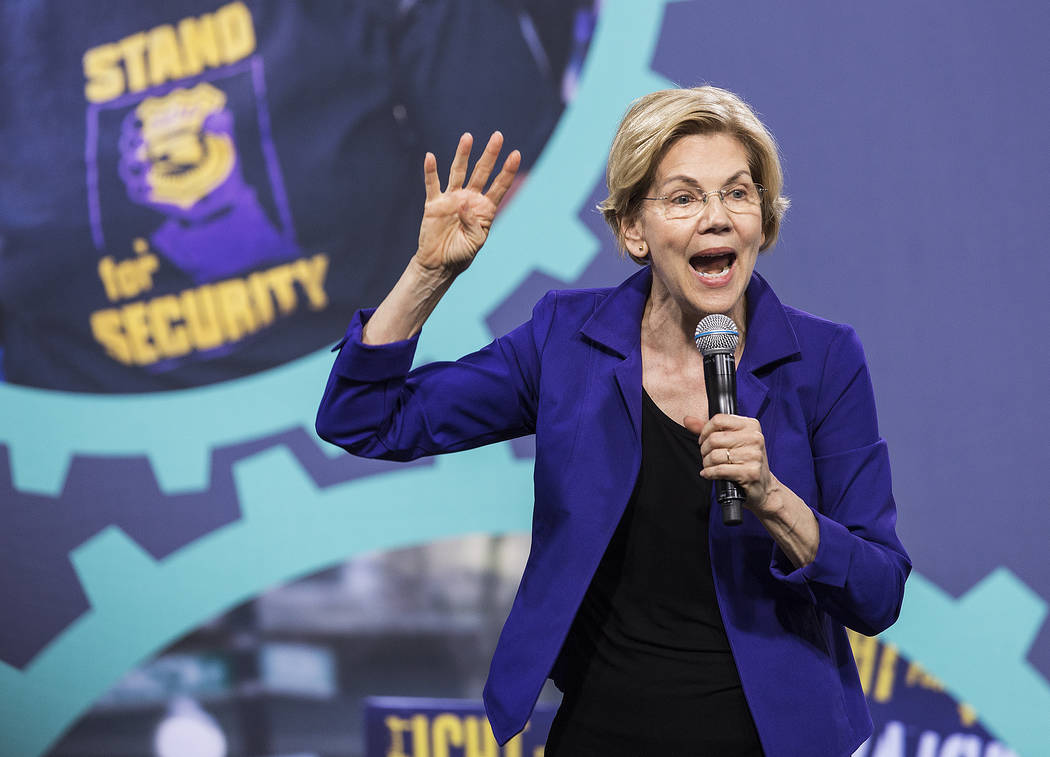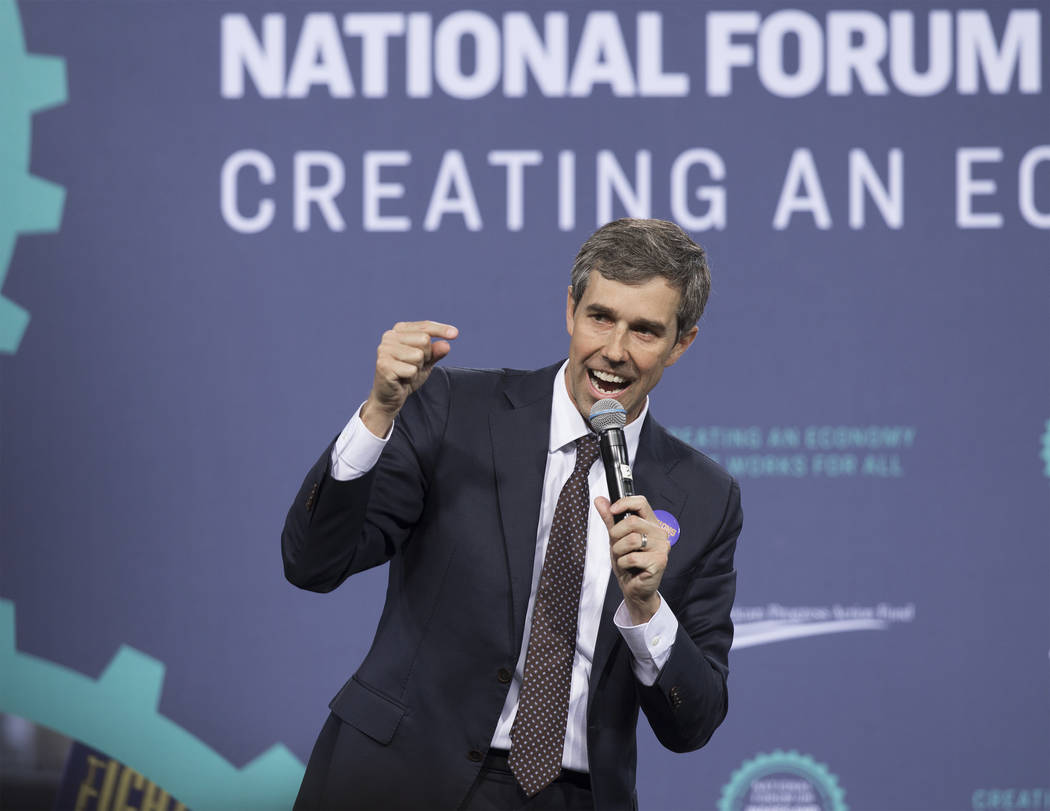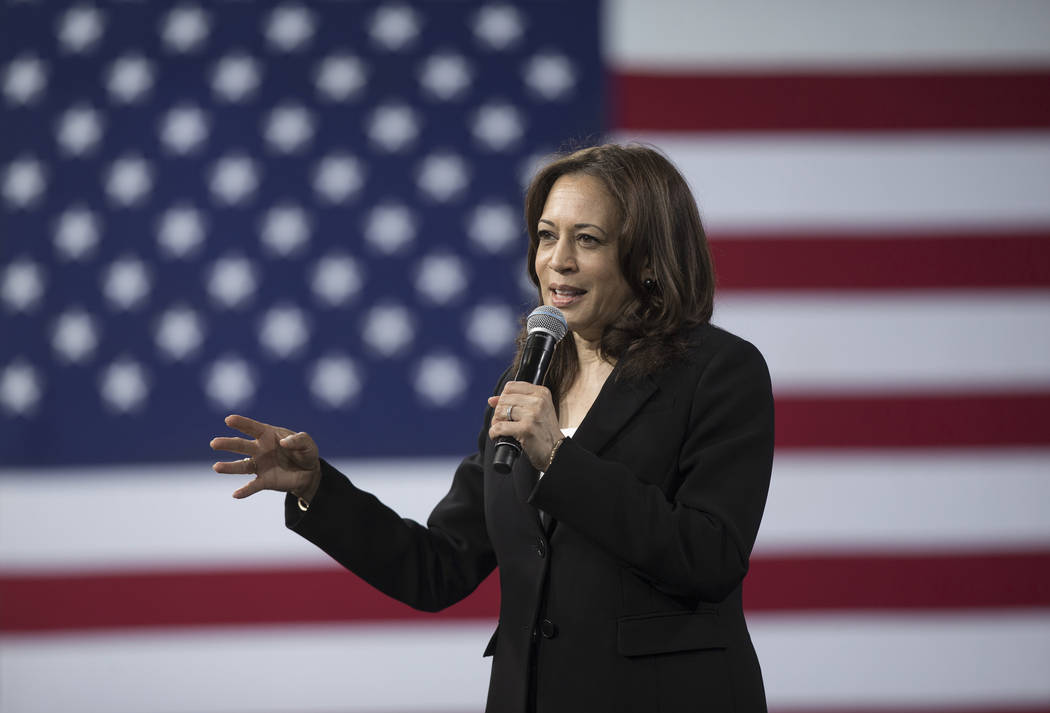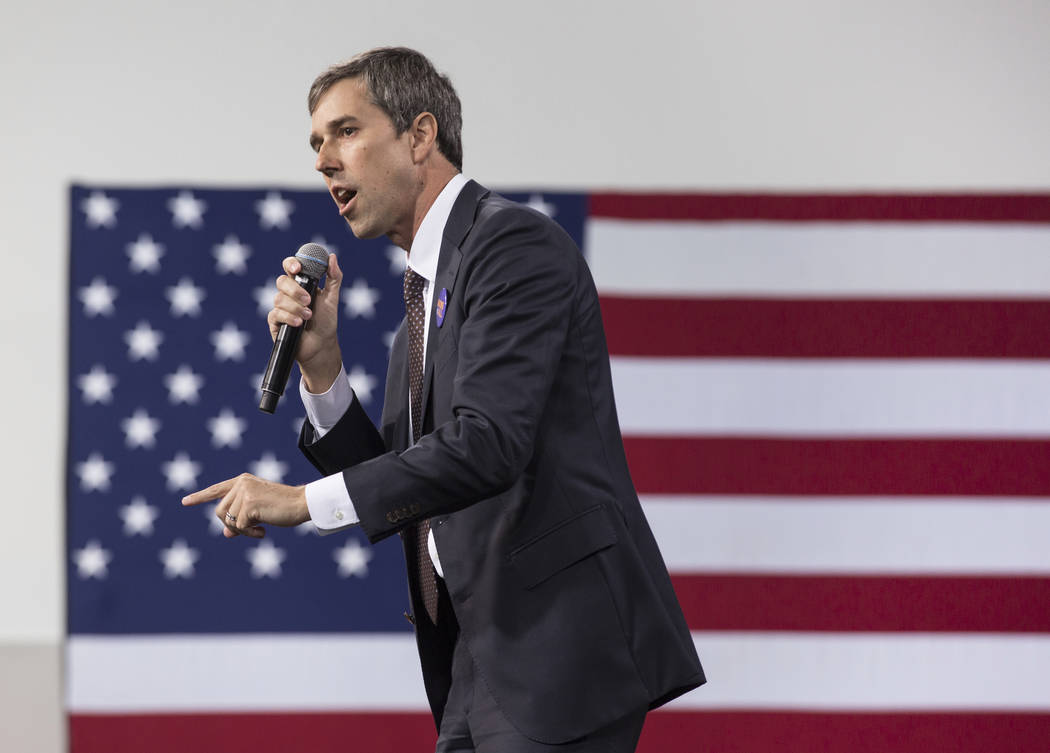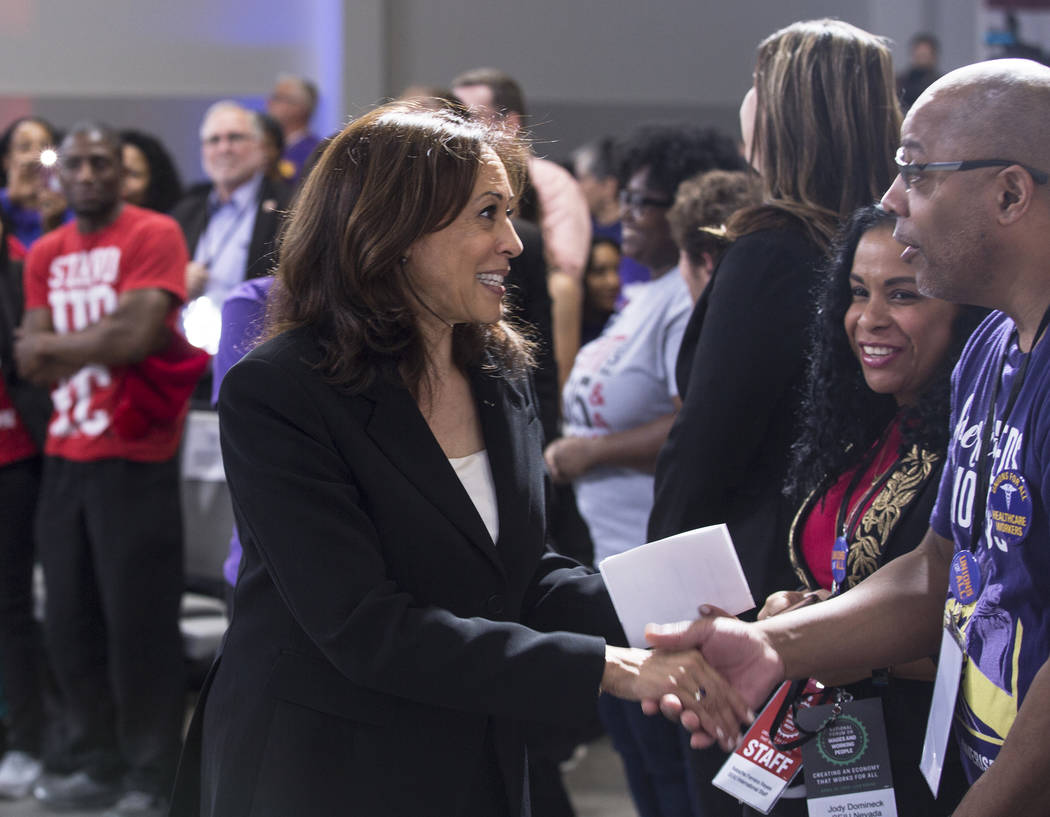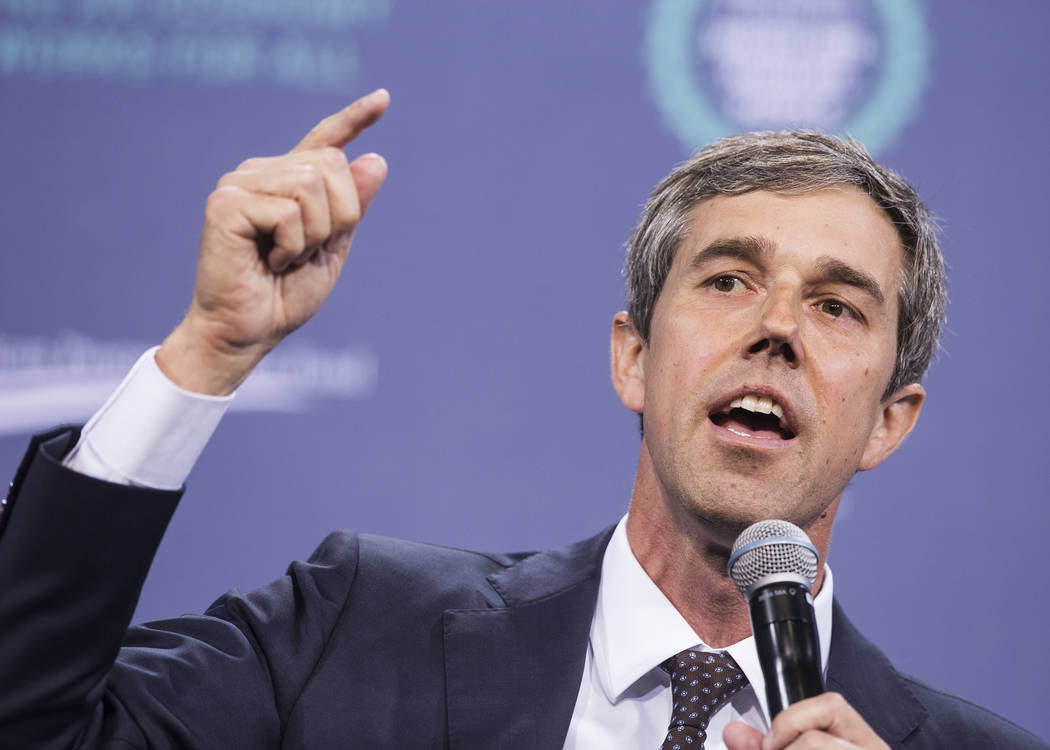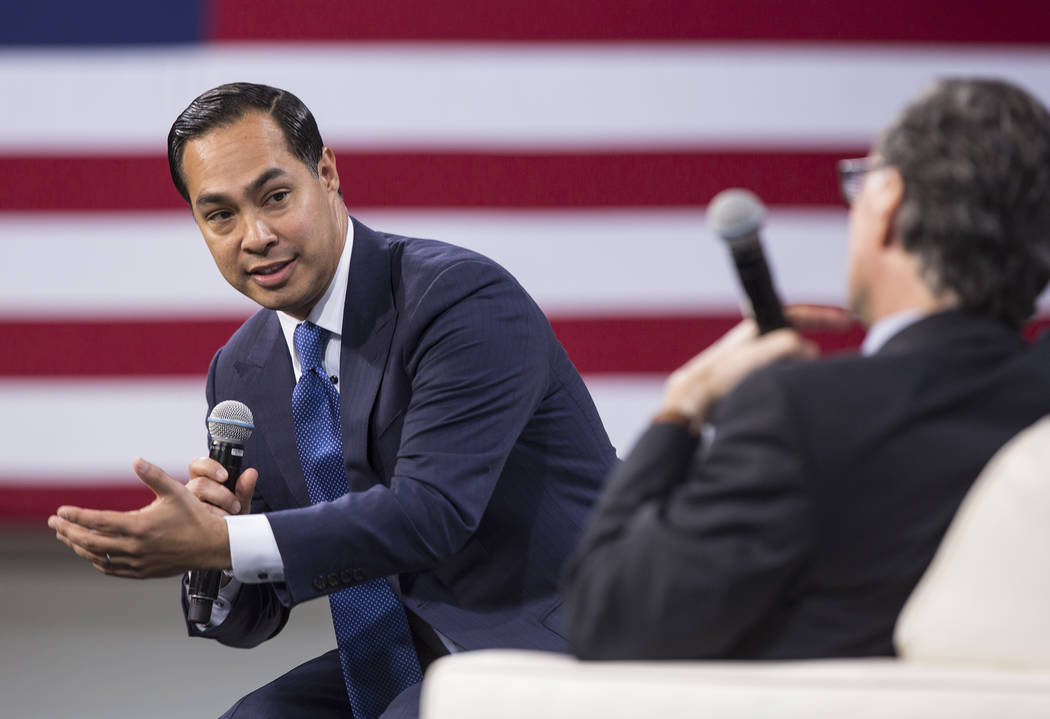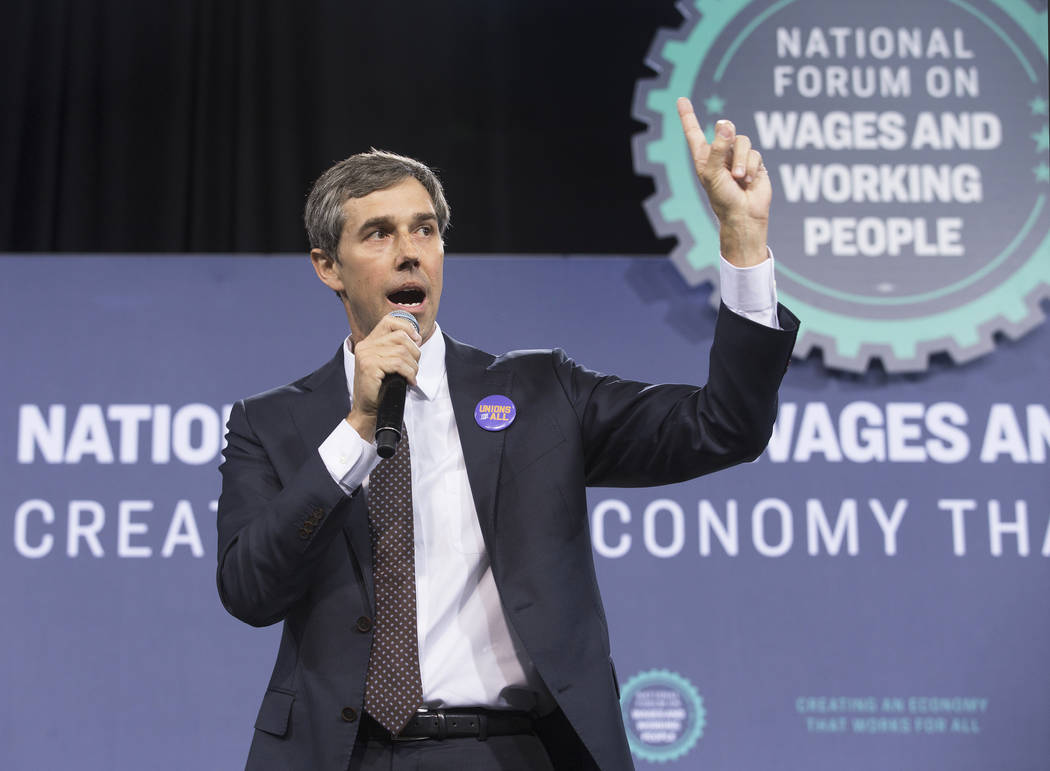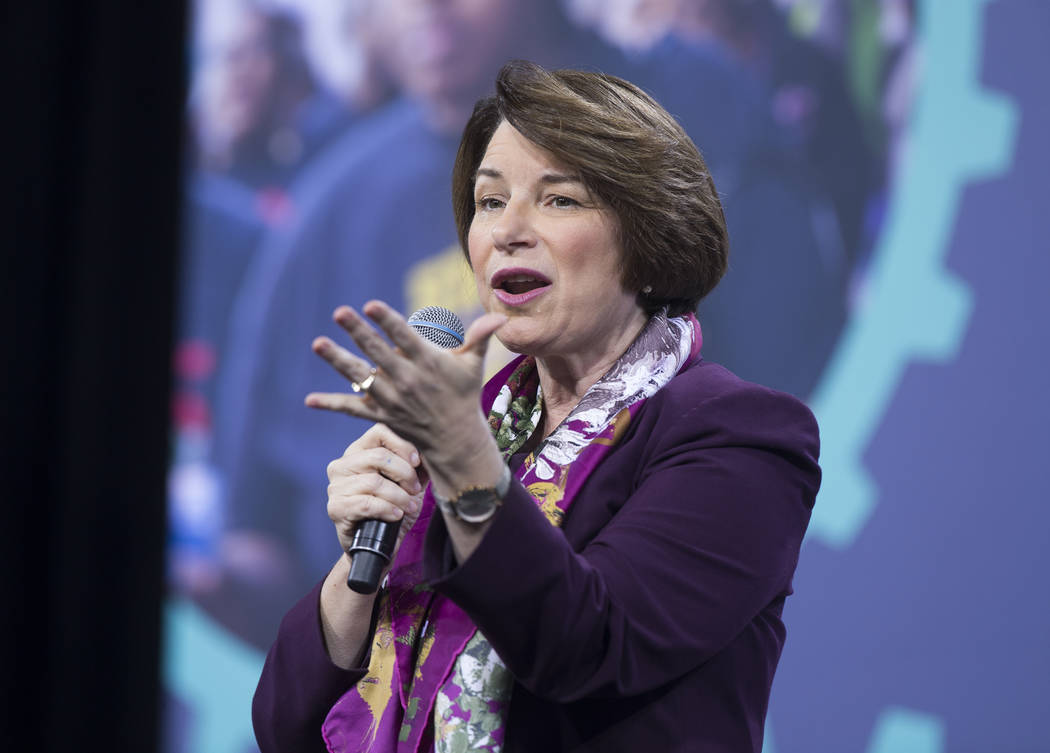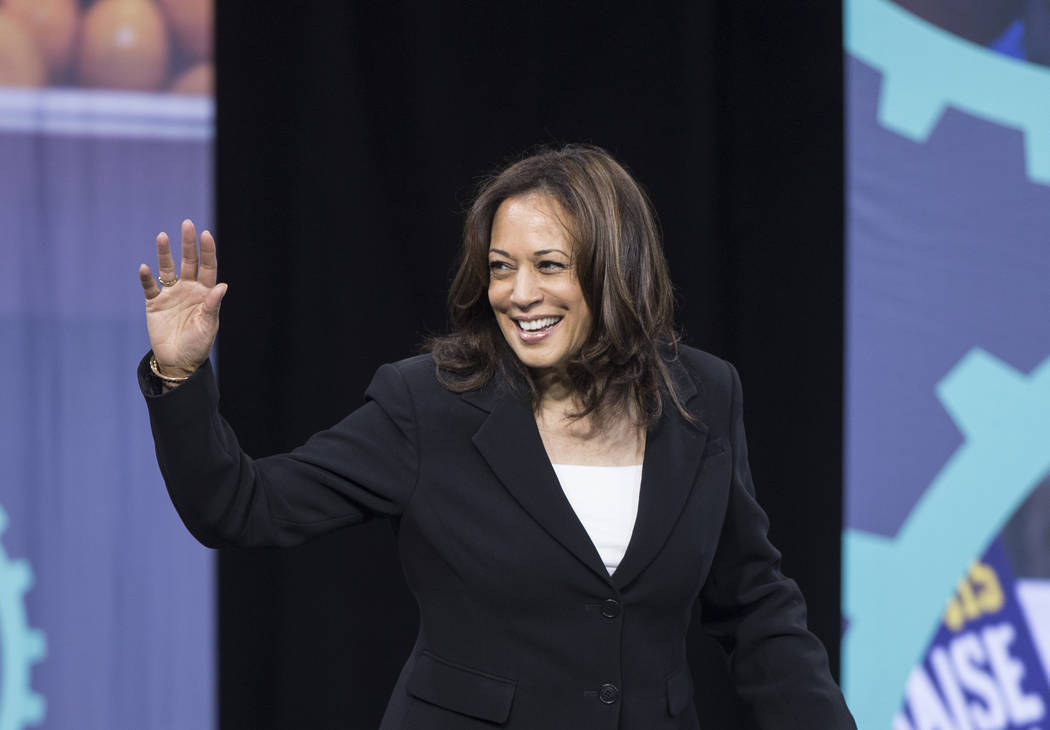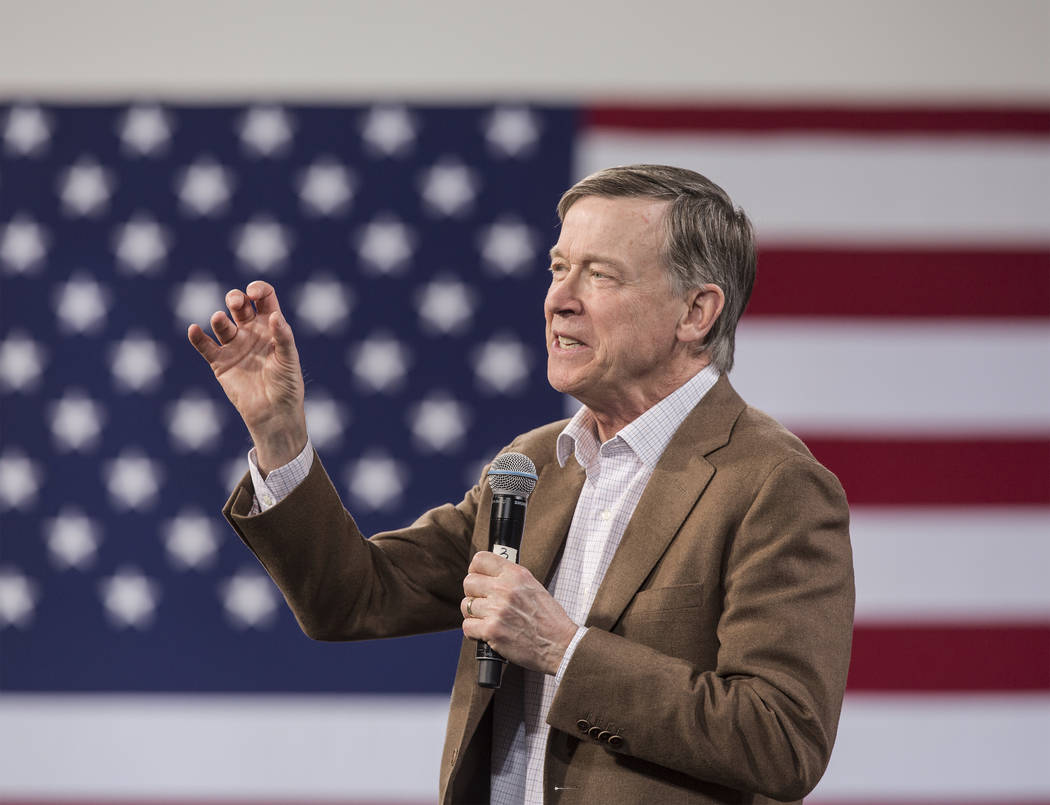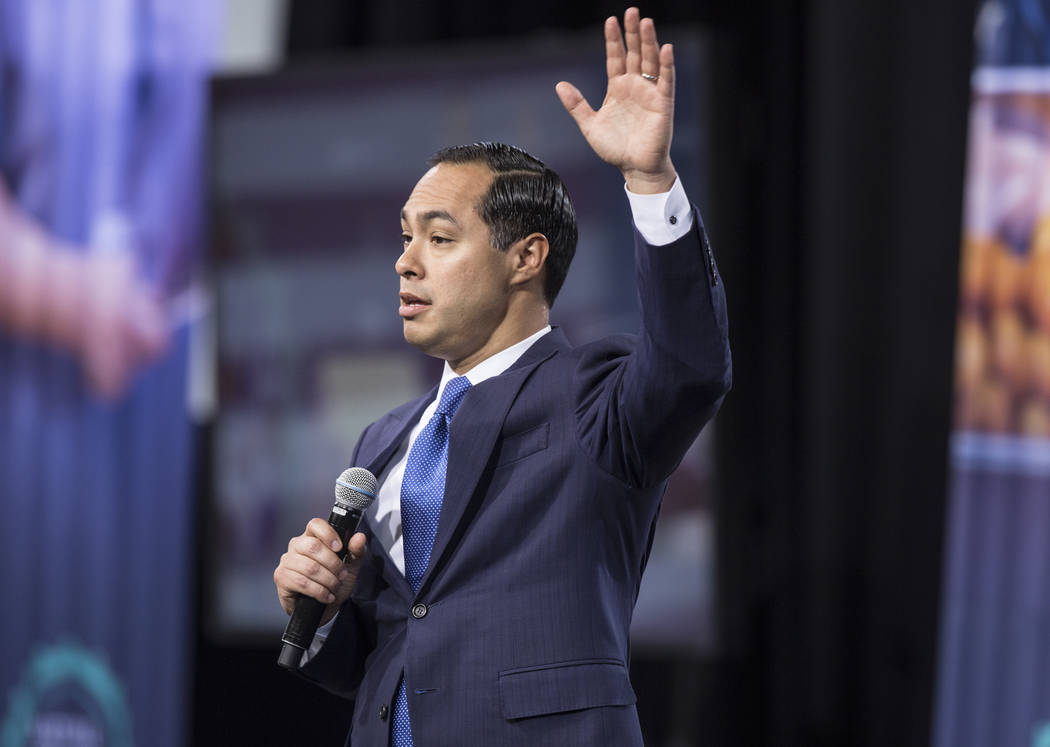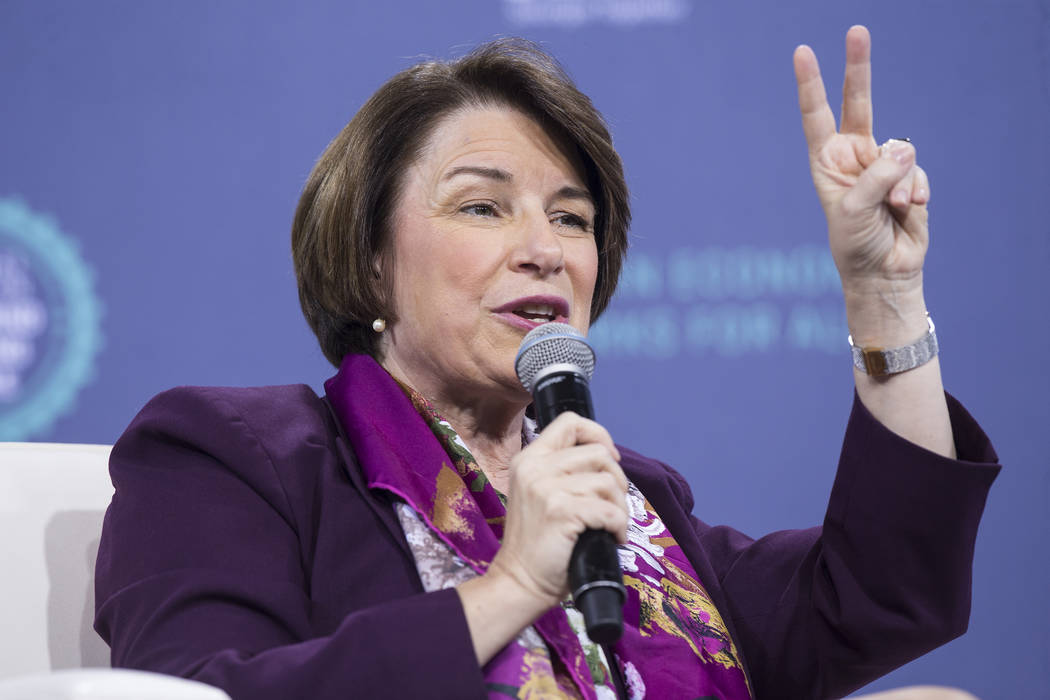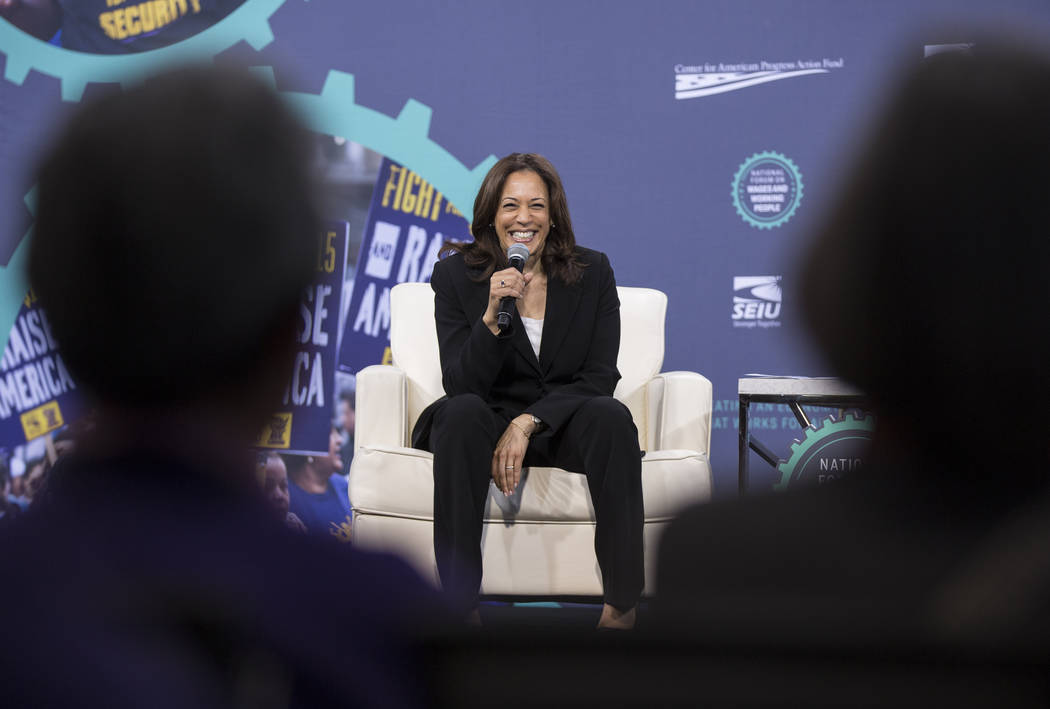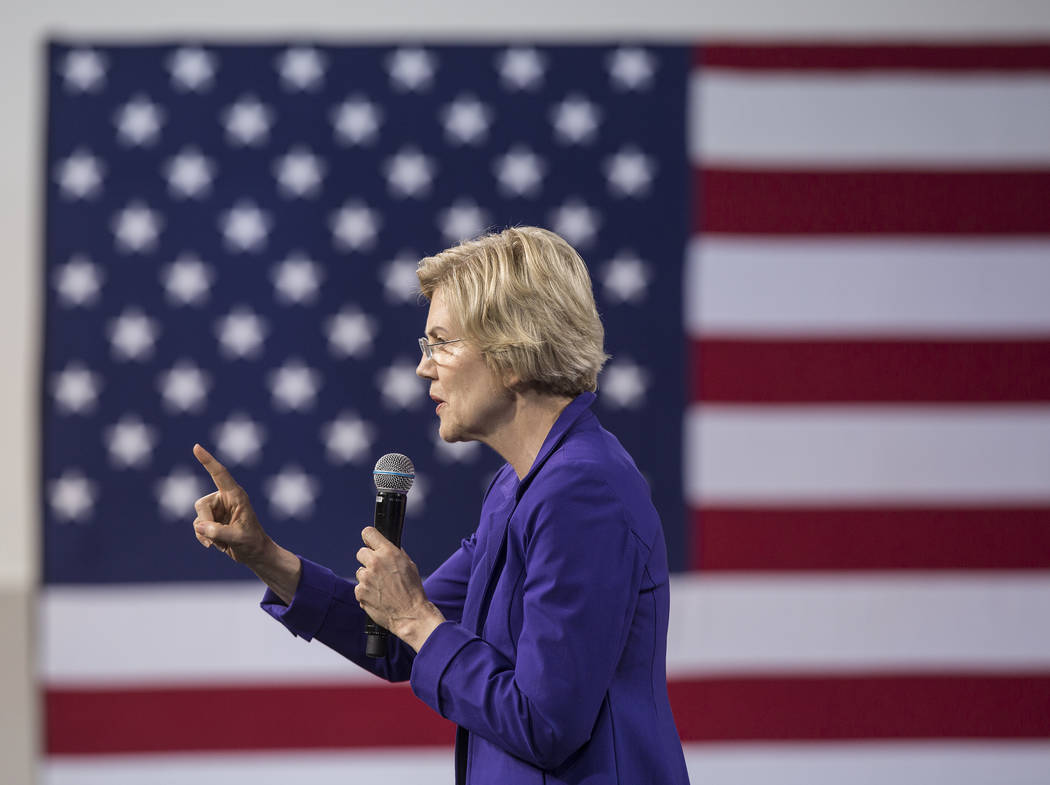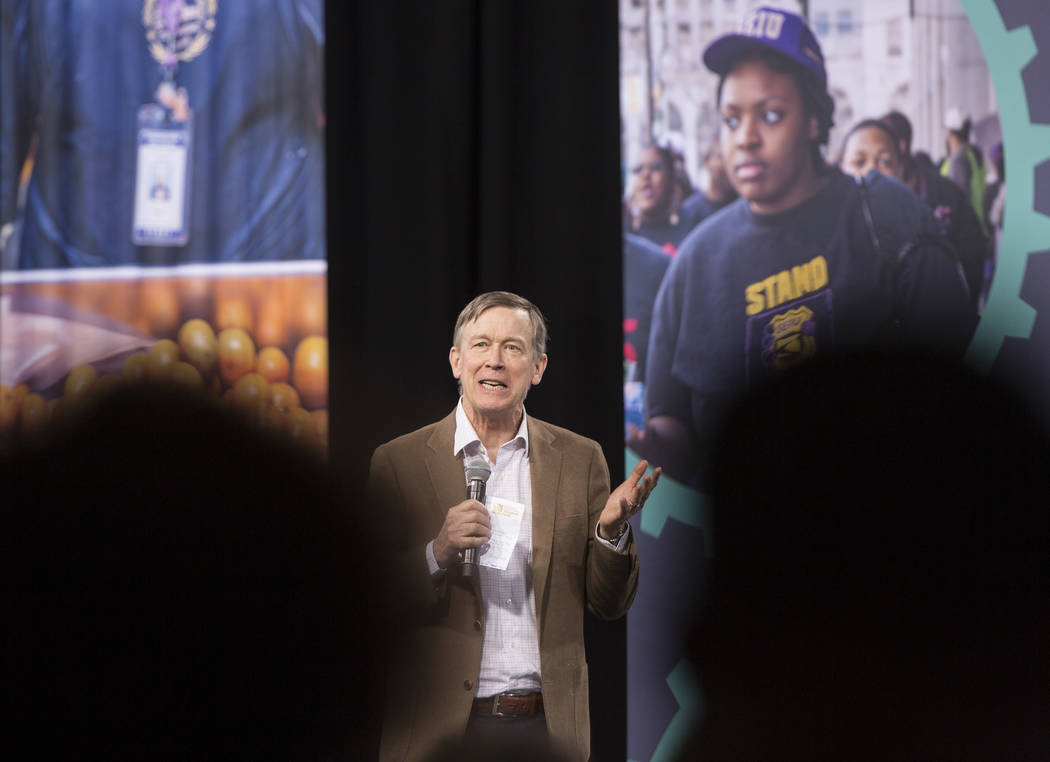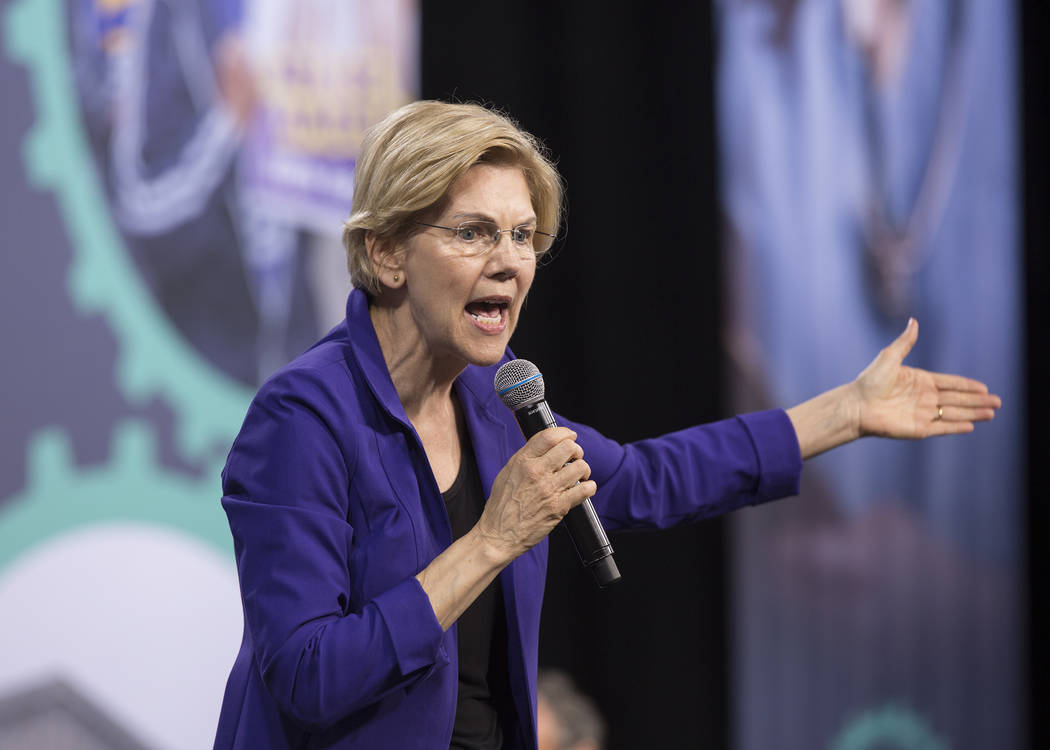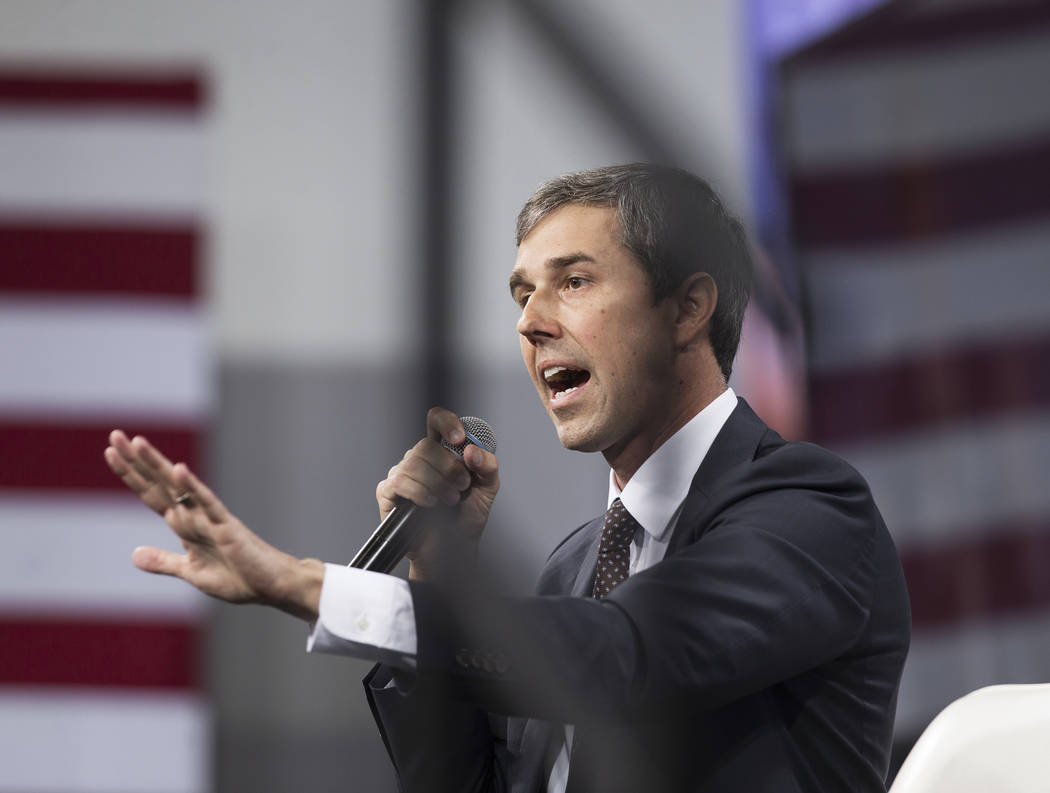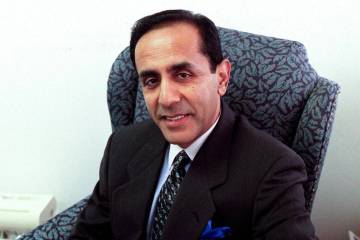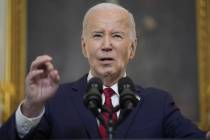Presidential hopefuls in Las Vegas back union wage fight — VIDEO
Six Democratic presidential candidates vowed in Las Vegas on Saturday to beat back attempts to weaken organized labor, describing unions as the front lines in the fight to equalize power between corporations and a disrespected working class.
In addition to calling for empowerment of labor groups, and removing the political and corporate impediments for workers who seek to organize, candidates also championed several broad policy themes that have become central to Democrats’ challenge to President Donald Trump in 2020.
Those tenets include raising the federal minimum wage, providing health care for all, enacting immigration reform and making education and child care more affordable. The issues were particularly significant to Saturday’s audience.
The candidates spoke individually in half-hour increments during the National Forum on Wages and Working People hosted by the Service Employees International Union – the largest health care labor group in Nevada – and the Center for American Progress, a progressive-leaning nonpartisan policy institute.
“We share a deep concern that most of our hard work is not paying off,” Mary Kay Henry, the international president of SEIU, told a crowd inside at Enclave, an event venue in southeastern Las Vegas.
To that end, the candidates closely aligned on strengthening worker protections and bolstering the middle class in America.
Restoring American values
“The people who are working the front lines have to be paid a fair wage,” said John Hickenlooper, the former Colorado governor.
“Unions built America’s middle class,” U.S. Sen. Elizabeth Warren said later. “Unions will rebuild America’s middle class.”
Julian Castro, who served as President Barack Obama’s secretary of Housing and Urban Development, put the economic divide in starkly bleak terms. He described a tour on Friday of storm tunnels running underneath the Las Vegas Strip, where he spoke with homeless people who live there.
“It wasn’t lost on me or anybody else there that underneath hotels that are worth hundreds of millions of dollars in one of the places that’s known around the world as a playground for people throughout this country, that you have people who are living in deep poverty,” said Castro, who is also a former mayor of San Antonio in his home state of Texas.
Responding to a question about battles over unionization efforts at a McDonald’s in Milwaukee, Wisconsin, U.S. Sen. Kamala Harris, from California, said as president she would call the fast food chain’s top executive to confront what she viewed as hypocrisy.
“You can’t tout with a sense of pride about being one of America’s oldest businesses that is a business that represents symbolically who we are as Americans,” she said, “and then not reflect in your business practices American values around people who work hard being able to have dignity and be able to pay their bills.”
Reclaiming blue-collar support
A frustration of blue-collar employees is what many political analysts believe led working class voters in the Midwest to choose Trump at the polls in 2016. To ensure that Democrats do not again alienate portions of that bloc, former U.S. Rep. Beto O’Rourke of Texas suggested looking no further than the issues being addressed by a throng of Democratic presidential candidates, adding that paying attention to rural community challenges was also key.
“In rural Nevada, try getting online,” he said. “Access to broadband, internet is incredibly scarce so your ability to finish your education, look for a job, start a business – whatever you’re supposed to do – is handicapped almost from the outset by a lack of investments in your community.”
U.S. Sen. Amy Klobuchar, from Minnesota, touched upon similar notes to the ones she struck when speaking to airline and rail union workers in Las Vegas less than three weeks ago: She said she’d fight for a $15 federal minimum wage, universal health care, union representation on the National Labor Relations Board and overturning the Citizens United decision by the Supreme Court.
Klobuchar also promoted her plan for an up-savings account, where employers who do not offer a 401K would be required to set aside 50 cents per hour into an account for workers — one that would be transferable to other jobs and could be drawn into as much as $1,500 yearly without penalties.
Workers are the drivers of the economy, she said, and policies simply should mirror that.
Harris said the surefire method to increase retirement security was to ensure that wages meet the cost of living for people while they’re still working. To that degree, she has proposed a change to the tax code to provide a tax credit up to $6,000 for families who make less than $100,000 per year.
The refund could be received as $500 monthly, and, she said, most economists agree that it would be the most significant tax break in generations.
In pitching the minimum wage hike, O’Rourke cast increases as mutually beneficial in that workers will be more productive if they do not feel compelled to perform a second or third job.
He was also the only candidate to directly confront racial inequality by framing the issue in historic terms, saying Americans must “squarely face the legacy of slavery and segregation and Jim Crow and continued oppression” in American democracy.
In speaking to matters believed to be ignored in the crowded presidential race, Castro said more must be done to assist those in deep poverty on Indian reservations. He added that he supported the unionizing of his campaign staff, whose interns will make $15 per hour; reducing criminal penalties to civil penalties for those who illegally cross the border into America; and installing a pathway to citizenship for undocumented immigrants who have not committed a crime.
Hickenlooper recalled his experience as governor when business owners rallied behind a minimum wage hike because they understood workers who stood to benefit would be customers. He also stopped short of advocating the dismantling of private health insurance, although he said he backed a public option.
Warren closed out Saturday’s forum by highlighting her plan to tax the wealthiest Americans 2 cents on the dollar for portions of their income, which she said would pave the way for universal college and eradicating student loan debt for 95 percent of loan borrowers.
The senator from Massachusetts also laid out a plan in which the biggest companies must obtain a national charter, thwarting corporations from seeking out the most tax-friendly state in which to incorporate, and must ensure that 40 percent of their boards of directors consist of employees.
Contact Shea Johnson at sjohnson@reviewjournal.com or 702-383-0272. Follow @Shea_LVRJ on Twitter.



